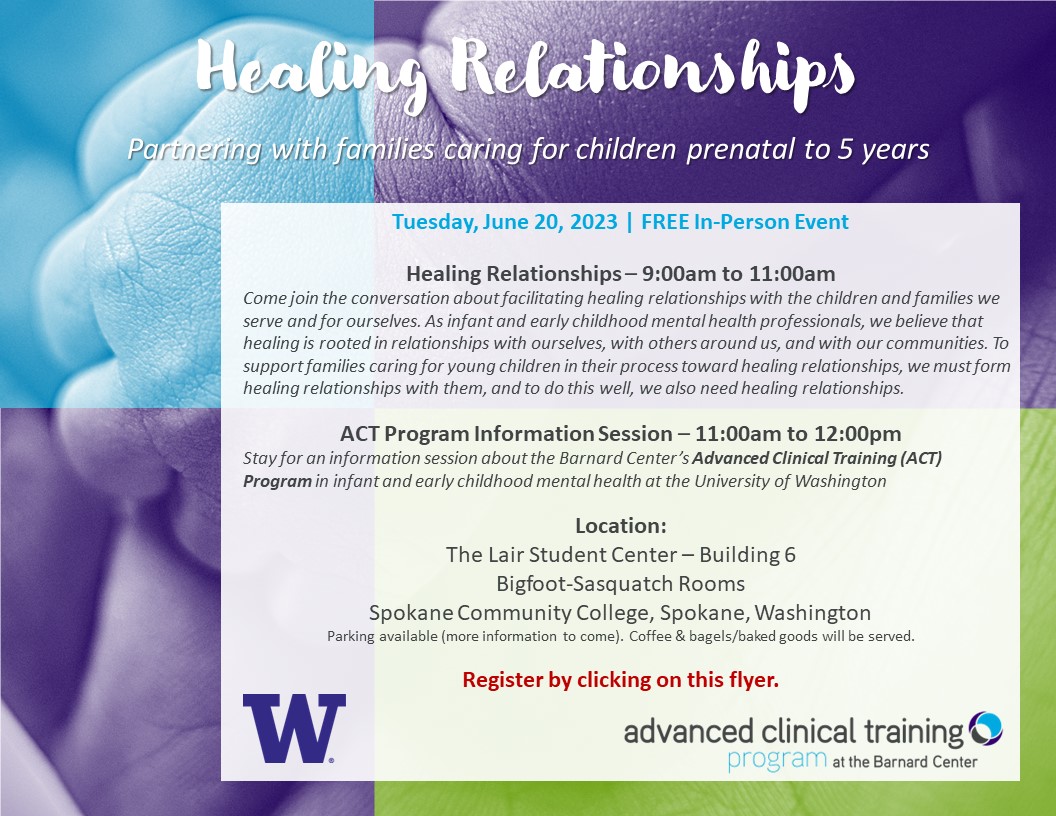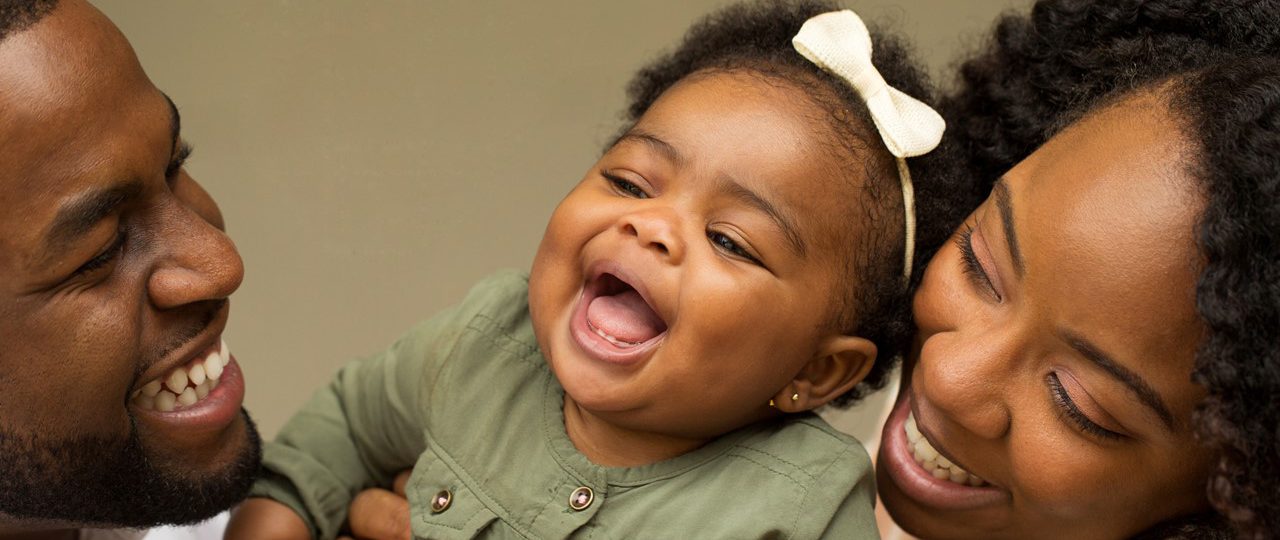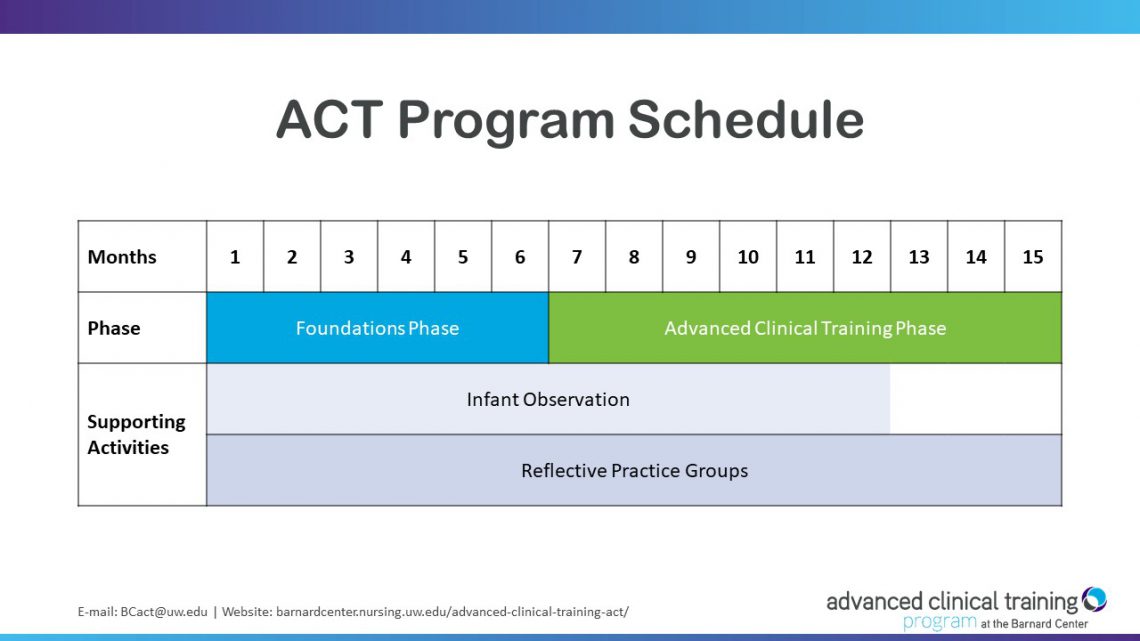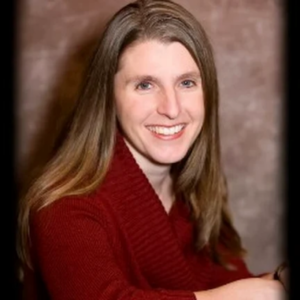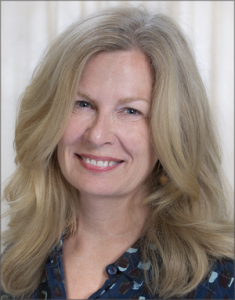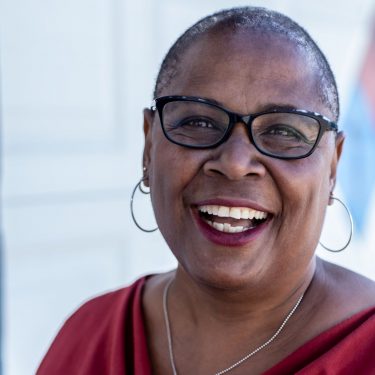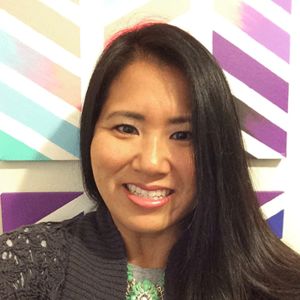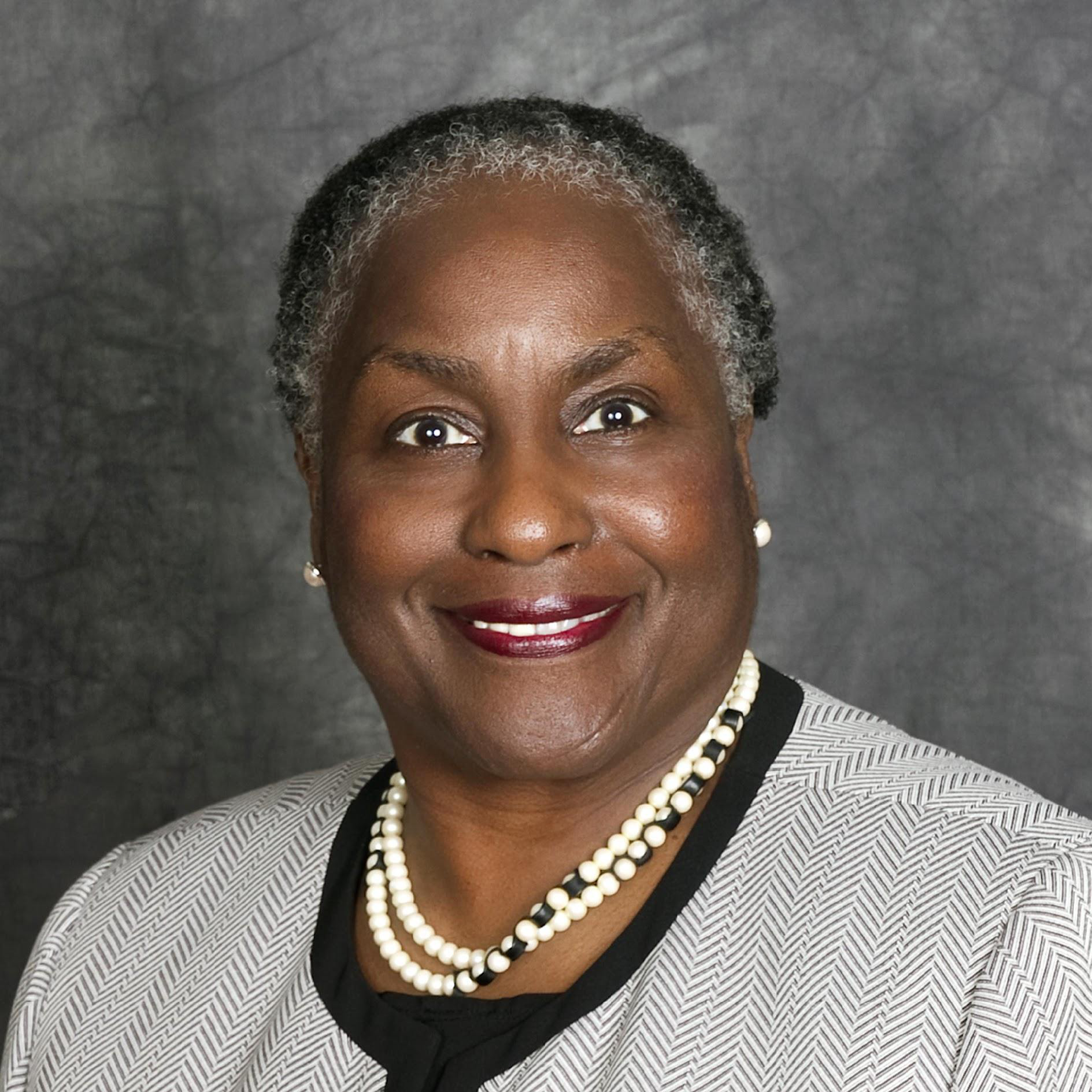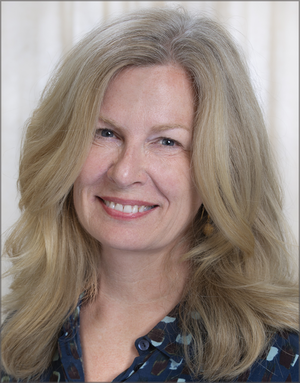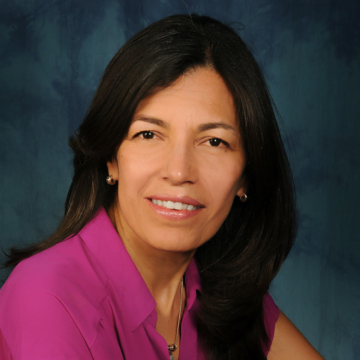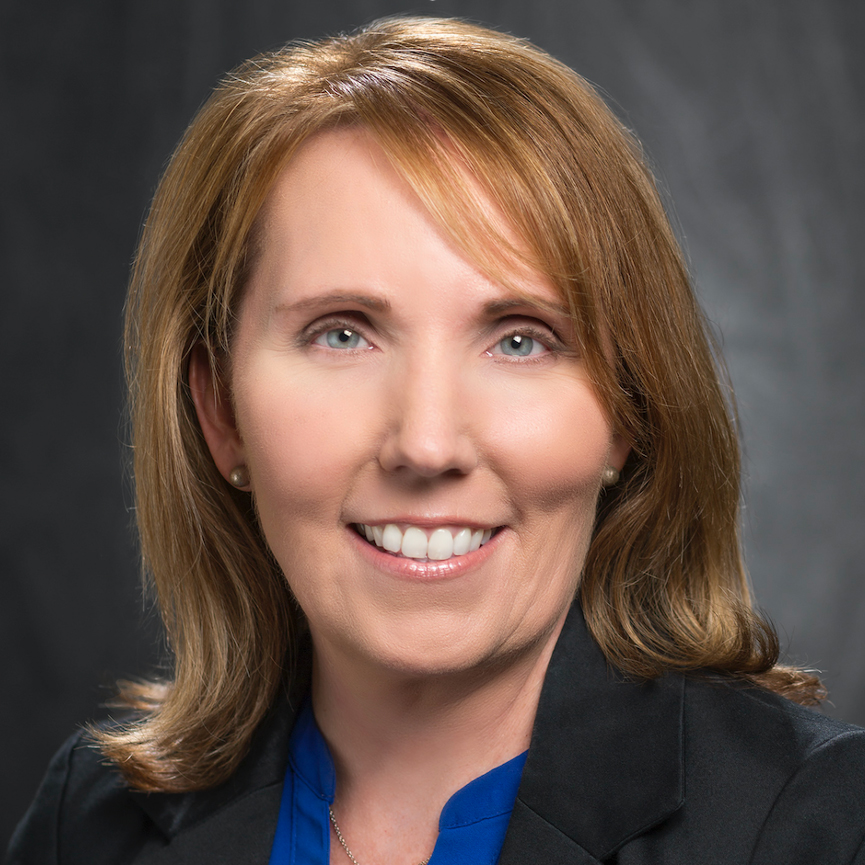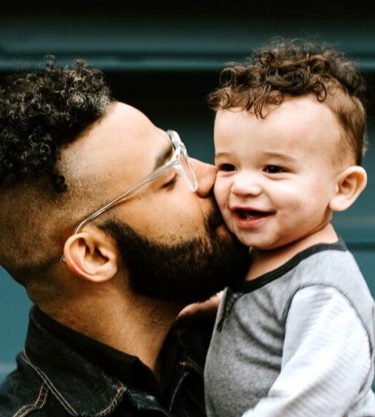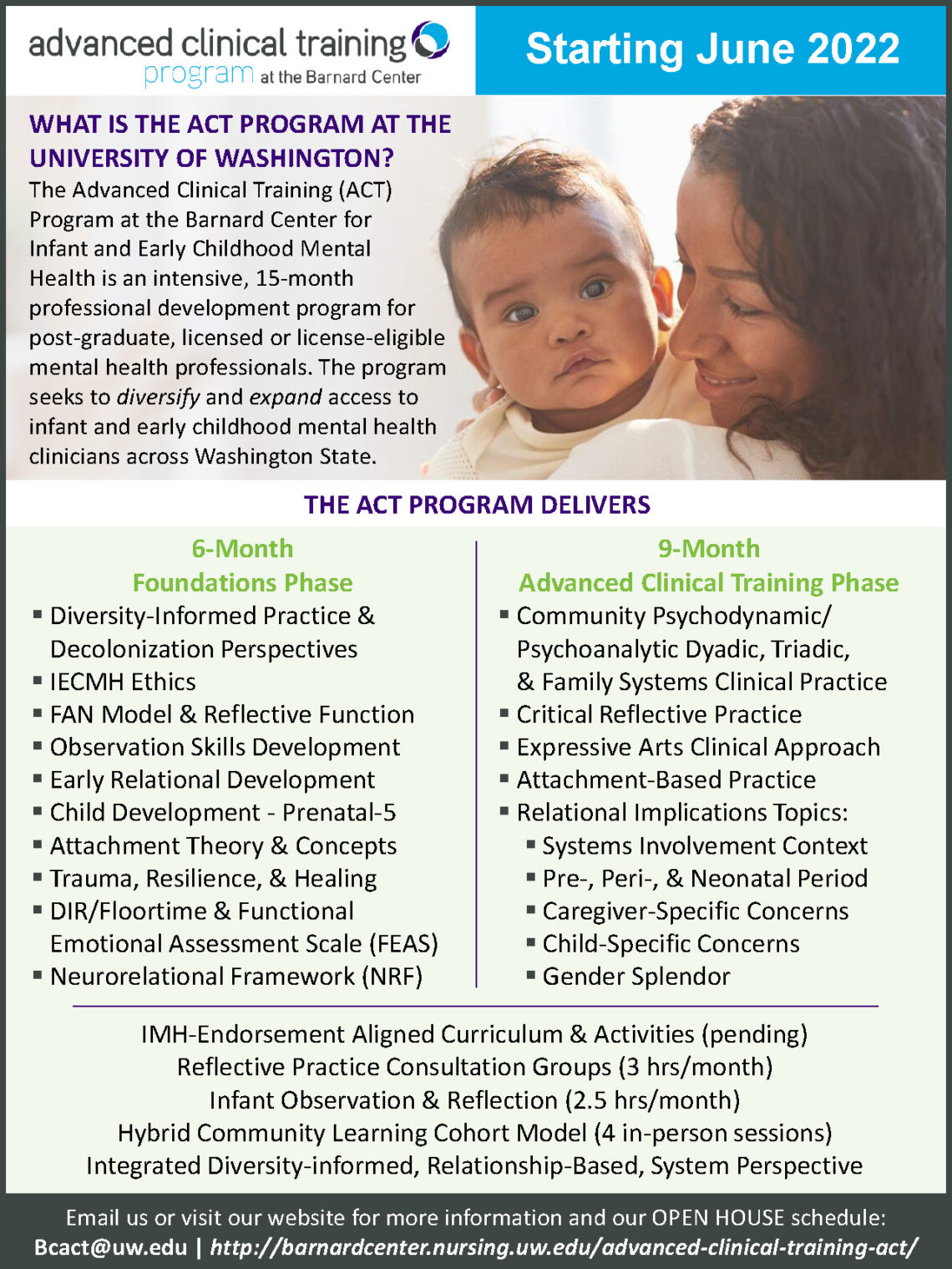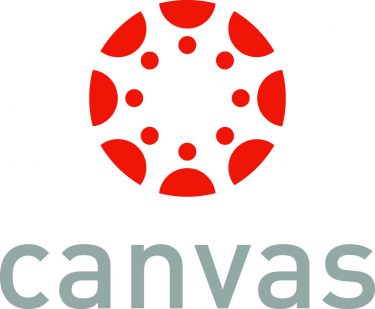-
ACT Home -
ACT Program -
ACT Core Values -
ACT Community -
ACT Application & Fees -
ACT Open House & Events -
ACT Canvas Log-in
Welcome to the Advanced Clinical Training (ACT) Program
The ACT Program is a 15-month, community learning structured, professional development program designed for licensed and license-eligible mental health professionals. It is composed of a foundations phase, an advanced clinical training phase, and two vital supporting activities – infant observation and reflective practice/consultation groups. The Foundations Phase introduces and grounds clinicians in the principles, knowledge, skills, and perspectives of infant and early childhood mental health and child development from prenatal to 5 years of age. The Advanced Clinical Training Phase focuses on specialized clinical infant and early childhood mental health treatment rooted in contemporary understanding and application of attachment and community psychoanalytic/psychodynamic perspectives, theories, and concepts. In addition to the traditional focus on relational processes and perspectives and the reflective stance, the ACT Program integrates diversity-informed practice principles based on the Diversity-Informed Tenets for Work with Infants, Children and Families to prepare clinicians to address the influences of systemic and structural inequities on the lives of infants, children and families, themselves, and their practice. This includes the understanding of deeply rooted social and cultural influences of normative standards based on our history of colonization and the multiple intersectionalities of race, gender, class, ability, sexuality, age, and other social positioning factors and identities.
The ACT Program goals are to diversify and expand the clinical infant and early childhood mental health workforce which, in turn, expands more equitable access to clinical infant and early childhood mental health services in Washington State. We utilize the definition of diversity that includes the full range (majority and minority) of identities and social positioning factors and circumstances including, but not limited, to race, gender, class, ability, sexuality, location (urban/suburban/rural), immigration status, and nationality. Our curriculum strives to explicitly address systemic barriers and gaps in professional development in content and approach and will incorporate the lived experiences of clinicians enrolled in the program to deepen the program’s learning community. When the diversity of professionals is representative of the communities they serve, children and families from those communities benefit. In turn, the profession benefits as a whole.
ACT Program Description
The ACT Program strives to expand the availability of and access to infant and early childhood mental health clinical treatment services throughout the state of Washington. The curriculum is designed to fill the gaps in knowledge and skills required to provide developmentally appropriate, diversity-informed, relationship-based clinical mental health interventions focused on the early relational health and wellbeing between infants and young children and their parents and caregivers. Students will learn how to support early social-emotional development of children from prenatal to five years of age; understand how infant mental health develops in the context of relationships and surrounding environmental influences, and how to provide dyadic mental health treatment to families with young children.
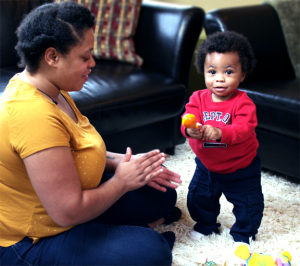 The ACT Program is designed as a 15-month learning cohort consisting of over 270 hours of instruction with supporting activities that include infant observation and reflective practice/consultation groups. The first six months are dedicated to foundational knowledge in infant and early childhood mental health including:
The ACT Program is designed as a 15-month learning cohort consisting of over 270 hours of instruction with supporting activities that include infant observation and reflective practice/consultation groups. The first six months are dedicated to foundational knowledge in infant and early childhood mental health including:
* Diversity-Informed Practice & Decolonization Perspectives
* IECMH Ethics
* FAN Model & Reflective Function
* Observation Skills Development
* Early Relational Development
* Child Development - Prenatal-5
* Attachment Theory & Concepts
* Trauma, Resilience, & Healing
* DIR/Floortime & Functional Emotional Assessment Scale (FEAS)
* Neurorelational Framework (NRF)
The subsequent nine months of the program are dedicated to developing clinical skills using a community psychoanalytic/psychodynamic framework for intergeneration treatment to assess and support parent/caregiver-child dyads and family systems who are experiencing relational strain. Through case studies, observational activities, and reflection, clinicians will apply foundational knowledge in early childhood development and relational health to clinical work with dyads and families. Clinicians will further develop and deepen clinical assessment and engagement approaches with parents and caregivers who themselves are often struggling with the impacts of trauma, loss, and related biopsychosocial challenges to facilitate and support the dyadic and familial healing and recovery process toward relational health and wellbeing. Session topics include:
* Community Psychodynamic/ Psychoanalytic Dyadic, Triadic, & Family Systems Clinical Practice
* Critical Reflective Practice
* Expressive Arts Clinical Approach
* Attachment-Based Practice
* Relational Implications Topics:
* Systems Involvement Context
* Pre-, Peri-, & Neonatal Period
* Caregiver-Specific Concerns
* Child-Specific Concerns
* Gender Splendor
Throughout the program, the learning objectives rest on a foundation of understanding diversity, equity, inclusion, and belonging through the application of the Diversity-Informed Tenets for Work with Infants, Children, and Families.
Program Structure
The ACT Program is designed as a learning community. This means that ACT Program clinicians will travel through the learning process together in relationship that we hope will continue beyond the completion of the program 15 months later. The learning community also offers an environment where clinicians can learn with and from one another, and through that relationship build and strengthen each person’s capacity to navigate, reconcile, and celebrate differences in knowledge, experience, and perspective. In the context of the learning community, we hold Jaree Pawl’s wisdom that “how we are is as important as what we do.”
Although we designed the program to be as friendly to working professionals as possible, the intensive nature of the program will require time from work as well as weekends and some weekday evenings. We encourage you to review the 2022-2023 Program Schedule (see ACT 2022 Schedule tab). The image below shows the phases and supporting activities, to be discussed more later, and how they fit within the 15-month program timeframe.
The COVID-19 pandemic has shifted the world and the ways in which we communicate and interact. We proceed holding in mind that COVID-19 is here to stay and plan for the next learning community cohort to be hybrid in structure with the majority of content learning sessions being delivered via synchronous Zoom meetings and strategically scheduled in-person gatherings over the 15-months of the program. Recognizing the fatiguing effects that many experience from online engagement, we plan for most sessions to be 3 hours long per day, to be held every other week on Fridays, Saturdays, and Sundays with alternative schedules to accommodate holiday observances and popular vacation seasons. Please review the dates and session lengths thoroughly. Note that content for the Advanced Clinical Training Phase is still in preliminary development and finalizing the times of sessions on Fridays, Saturdays, and Sundays, is in process likely with your input. Monthly Infant Observation virtual visits will be determined in agreement with the volunteer families. The monthly 90-minute Infant Observation Reflection Groups and the two monthly 90-minute Reflective Practice/Consultation Groups will likely be scheduled on weekday evenings.
Infant Observation
Infant Observation is a supporting activity that spans the first 12 months of the ACT Program. ACT Program clinicians are responsible for recruiting a family who is expecting in their late third trimester or has recently given birth. Consent forms will be provided. Clinicians will be oriented to the observation model and objectives of infant observation during Month 1 of the program. Clinicians are required to complete at least nine 1-hour long virtual visits during the 12-month period (9-12 hours total). Each month, clinicians will gather virtually in designated facilitated reflection groups. Each monthly Infant Observation Reflection Group is 90 minutes long (18 hours total). Infant Observation offers a special window into the early relational developmental processes during the earliest days, weeks, and months after birth.
Facilitated Reflective Practice/Consultation Group
ACT Program clinicians will participate in faculty-facilitated Reflective Practice/Consultation Groups (RPCGs). These groups are opportunities for clinicians to reflect on the integration of program content with current clinical practice experiences and consult on the application of new knowledge and skills in clinical engagement. RPCGs are 90 minutes long and occur twice monthly across the 14 months of the ACT Program (42 hours total). RPCGs provide further opportunities to build relationships and engage in collaborative and mutual learning for the learning community.
Session Attendance
Clinicians enrolled in the ACT Program are expected to attend all scheduled sessions. Sessions missed cannot be made up and will impact the number of continuing education contact hours. In addition, because session content is strongly aligned to required endorsement competencies as dictated by WA-AIMH and MI-AIMH Guidelines, missing session content can impact meeting those competency requirements.
Online Participation
Virtual participation provides many convenience-related benefits; however, virtual interaction may be stifled and feel disconnected. To maximize the learning community structure, ACT Program clinicians are expected to be present on video in Zoom unless otherwise requested. Additional guidelines for co-creating virtual space together will be discussed and implemented during the first session of the ACT Program.
Connectivity
Online participation will require stable internet access with adequate bandwidth to accommodate the use of video streaming for session content. ACT Program clinicians who have experienced connectivity instability in the past should take action to ensure connectivity stability. Concerns about resolving connectivity problems should be communicated to the program director.
The ACT program will communicate primarily through e-mail. Therefore, ACT Program clinicians should provide a preferred e-mail address that is checked regularly to ensure timely communication regarding program notifications and activity.
The ACT Program utilizes the Canvas platform to host program material including syllabi, readings, videos, and discussion boards. Canvas is accessible to Google account holders. For this reason, ACT Program clinicians will be required to have a Google account even if it does not serve as the primary or preferred email address.
Required & Recommmended Materials: Readings, Texts, & Videos
ACT Program Clinicians are expected to complete all “Required Materials” in preparation for related sessions. Clinicians will also be provided with videos, sometimes as preparation for a class as well as for ongoing practice to build observation skills based on frameworks introduced in program sessions. As a program for working professionals, every effort will be made to keep “Required Materials” and other preparation assignments manageable, with options to engage in more through Recommended Materials and Resources.
Organizational Commitment to Diversity, Equity, and Inclusion Statement
At the Barnard Center, we utilize the definition of diversity that includes the full range (majority and minority) of identities and social positioning factors and circumstances including, but not limited to, race, gender, class, ability, sexuality, location (urban/suburban/rural), immigration status, and nationality. We recognize that it is critically important for those of us in leadership positions to articulate our commitment to reflect on, and learn about, the experiences of populations that are not typically represented by the dominant (white, middle class) culture so that we may be held accountable to advancing equity and justice. We are also committed to recognizing how we, or the systems we work in, reinforce and benefit from social structural inequality. We recognize that addressing diversity, equity, and inclusion is both deeply personal and institutional. At the Barnard Center for Infant and Early Childhood Mental Health, we aim to support all staff, students, and faculty in the process of learning about and reflecting on how we can be agents of change for the infant mental health field.
There are several ways in which we as educators seek to assure that our trainings are informed by diversity, equity, and inclusion (DEI) approaches and strategies. We do this by 1) making our trainings more accessible to all participants, especially those who have not had access to our trainings, 2) by attracting and mentoring diverse learners and future leaders, 3) by equipping our educators with the tools they need to facilitate hard conversations that may occur in practice, and by 4) undertaking critical self-reflection in the process of doing this work and supporting self-reflection of our staff, students and faculty.
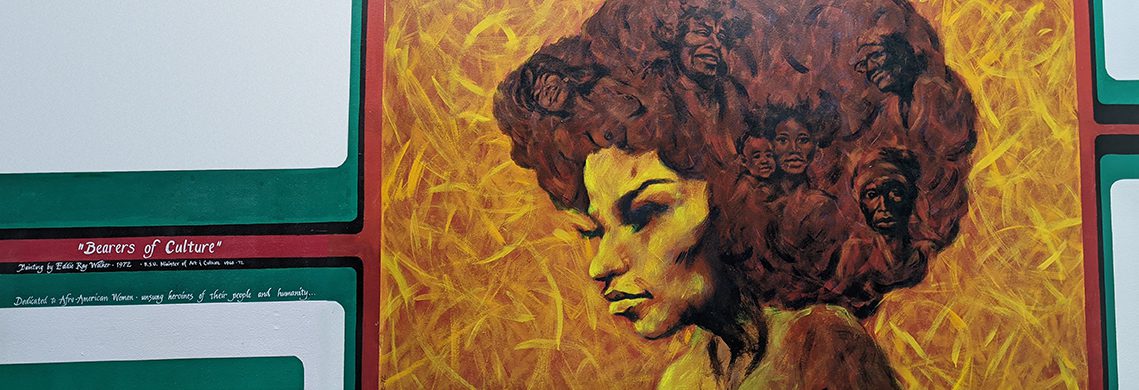
"Bearers of Culture" Painting by Eddie Ray Walker, 1972 [BSU Minister of Art & Culture 1968-1972]. Text reads, "Dedicated to Afro-American Women - unsung heroines of their people and humanity..."
Diversity-Informed Tenets for Work with Infants, Children and Families (The Tenets)
The Tenets are aspirational principles of best practices in the field of infants, children and families. Each of the 10 Tenets call attention to the wide range of ways that intersecting, interacting, interconnected, and interdependent systems of oppression (see Core Concepts) influence the lives of children, families, professionals, organizations, and systems of care. The central principle of the Tenets centers our work to deepen self awareness of our identities, history, and experiences with the various systems of oppression as individuals, organizations, and systems of care toward the highest standards of diversity, equity, inclusion, and belonging. To learn more, visit the Tenets website at: diversityinformedtenets.org
Tenets Initiative. (2018). Diversity-Informed Tenets for Work with Infants, Children & Families/Principios informados en la diversidad para trabajar con bebés, niños, niñas y familias. Chicago, IL: Irving Harris Foundation.

Self-Awareness Leads to Better Services for Families
Working with infants, children, and families requires all individuals, organizations, and systems of care to reflect on our own culture, values and beliefs, and on the impact that racism, classism, sexism, able-ism, homophobia, xenophobia, and other systems of oppression have had on our lives in order to provide diversity-informed, culturally attuned services.
Diversity-Informed Tenets for Work with Infants, Children and Families
Champion Children’s Rights Globally
Infants and children are citizens of the world. The global community is responsible for supporting parents/caregivers, families, and local communities in welcoming, protecting, and nurturing them.
Diversity-Informed Tenets for Work with Infants, Children and Families
Work to Acknowledge Privilege and Combat Discrimination
Discriminatory policies and practices that harm adults harm the infants and children in their care. Privilege constitutes injustice. Diversity-informed practitioners acknowledge privilege where we hold it, and use it strategically and responsibly. We combat racism, classism, sexism, able-ism, homophobia, xenophobia, and other systems of oppression within ourselves, our practices, and our fields.
Diversity-Informed Tenets for Work with Infants, Children and Families
Recognize and Respect Non-Dominant Bodies of Knowledge
Diversity-informed practice recognizes nondominant ways of knowing, bodies of knowledge, sources of strength, and routes to healing within all families and communities.
Diversity-Informed Tenets for Work with Infants, Children and Families
Honor Diverse Family Structures
Families decide who is included and how they are structured; no particular family constellation or organization is inherently optimal compared to any other. Diversity-informed practice recognizes and strives to counter the historical bias toward idealizing (and conversely blaming) biological mothers while overlooking the critical child-rearing contributions of other parents and caregivers including second mothers, fathers, kin and felt family, adoptive parents, foster parents, and early care and educational providers.
Diversity-Informed Tenets for Work with Infants, Children and Families
Understand That Language Can Hurt or Heal
Diversity-informed practice recognizes the power of language to divide or connect, denigrate or celebrate, hurt or heal. We strive to use language (including body language, imagery, and other modes of nonverbal communication) in ways that most inclusively support all children and their families, caregivers, and communities.
Diversity-Informed Tenets for Work with Infants, Children and Families
Support Families in Their Preferred Language
Families are best supported in facilitating infants’ and children’s development and mental health when services are available in their native languages.
Diversity-Informed Tenets for Work with Infants, Children and Families
Allocate Resources to Systems Change
Diversity and inclusion must be proactively considered when doing any work with or on behalf of infants, children, and families. Resource allocation includes time, money, additional/alternative practices, and other supports and accommodations, otherwise systems of oppression may be inadvertently reproduced. Individuals, organizations, and systems of care need ongoing opportunities for reflection in order to identify implicit bias, remove barriers, and work to dismantle the root causes of disparity and inequity.
Diversity-Informed Tenets for Work with Infants, Children and Families
Make Space and Open Pathways
Infant, child, and family-serving workforces are most dynamic and effective when historically and currently marginalized individuals and groups have equitable access to a wide range of roles, disciplines, and modes of practice and influence.
Diversity-Informed Tenets for Work with Infants, Children and Families
Advance Policy That Supports All Families
Diversity-informed practitioners consider the impact of policy and legislation on all people and advance a just and equitable policy agenda for and with families.
Diversity-Informed Tenets for Work with Infants, Children and Families

Fall Colors, 2018, Arboretum. © 2021. The UW Visual Media Database is administered and maintained by University Marketing and Communication (UMAC).

The totem pole located outside the Burke Museum. © 2021. The UW Visual Media Database is administered and maintained by University Marketing and Communication (UMAC).
Decentering
Decentering refers to behaviors that acknowledge, attend to, increase the influence and/or importance of the marginalized, and expand the “norm” while diffusing focus on, and decreasing the influence or importance of the dominant.
Decolonization
Decolonization is a process of “centering our concerns and world views and then coming to know and understand theory and research from our own perspective and for our own purposes” (Smith, 1999, p. 39).
Decolonization is “the intelligent, calculated, and active resistance to the forces of colonialism that perpetuate the subjugation and/or exploitation of our minds, bodies, and land” that “is engaged for the ultimate purpose of overturning the colonial structure and realizing Indigenous liberation” (Gray, Coates, & Yellowbird, 2008, p. 2).
Napoli, M. (2019). Ethical contemporary art therapy: honoring an American Indian perspective. Art Therapy, 36(4), 175-182.
Diversity-Informed Practice
Diversity-informed practice is a dynamic system of beliefs and values that shapes interactions between individuals, organizations and systems of care. Diversity-informed practice recognizes the historic and contemporary salience of racism, classism, sexism, able-ism, homophobia, xenophobia, and other systems of oppression and strives for the highest possible standard of inclusivity in all spheres of practice: teaching and training, research and writing, policy and advocacy, as well as direct service.
Diversity-Informed Tenets for Work with Infants, Children and Families Initiative, 2020
Equity
Equity refers to the value-based concept that seeks to ensure that all people have access to the biological, economic, political, and social resources needed to optimally develop and achieve wellbeing. A central premise of equity is the acknowledgement that all people begin their developmental journey with differing levels of resources related to and/or determined by social positioning factors such as race, ethnicity, class, gender, ability, sexuality, and nationality. Realizing equity will require unequal distribution of resources based on the needs of each individual.
Diversity-Informed Tenets for Work with Infants, Children and Families Initiative, 2020
Infant and Early Childhood Mental Health
“Infant mental health is defined as the developing capacity of the infant and young child to experience, express, and regulate emotions; form close and secure relationships; and explore the environment and learn, all in the context of cultural expectations (ZERO TO THREE Infant Mental Health Task Force, 2001). A major premise of infant mental health is that babies’ emotional, social and cognitive development and competencies unfold in the context of …relationships; thus supporting both the infant and the…caregiver is crucial to optimize the young child’s functioning” (Osofsky & Liberman, 2011, p. 120).
Diversity-Informed Tenets for Work with Infants, Children and Families Initiative
Systems of Oppression
“Oppressive systems can be thought of as the structures within the greater society that allow inequities to continue. These systems allow the perpetuation of policies and practices that disadvantage marginalized groups.”

-
ACT Program Staff & Faculty -
ACT Program 2021 Instructors -
ACT Program 2022 Instructors -
ACT Program 2023 Instructors -
ACT Program Clinicians
-
Nucha Isarowong -
Abigail Bocanegra -
Kadija Johnston -
Monica Oxford -
Maria St. John -
Haruko Watanabe -
Cree Whelshula -
Joyce Yang
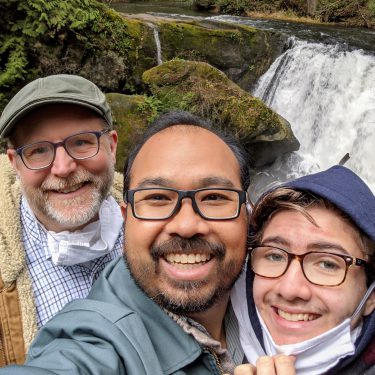 Nucha Isarowong, PhD, LICSW, IMH-E®
Nucha Isarowong, PhD, LICSW, IMH-E®
Nucha Isarowong is the Director of the Advanced Clinical Training Program at the Barnard Center for Infant and Early Childhood Mental Health on the campus of the University of Washington. His clinical experience includes work with and on behalf of infants, children, and families in home and school settings. Most recently, he served as faculty at Erikson Institute in Chicago, IL, where he instructed classes in the Master of Social Work Program and the Infant Mental Health Certificate Program. His clinical and scholarship experience and interests address sociocultural, relational, and structural factors that influence social-relational dynamics and facilitate access to and utilization of resources and services by families caring for infants and children from the broad range of diverse communities. His current efforts focus on multi-level systems integration of diversity, equity, and inclusion principles in the context of father engagement practices and policies, integration of trauma-informed practice, generally, and in Part C Early Intervention, specifically, shifting understanding of disabilities and developmental differences, and affecting systems change. Nucha is a ZERO TO THREE Fellow (2012-2013), and currently serves on the coordinating council of the Academy of ZERO TO THREE Fellows. He also serves as a national workshop facilitator and member of the Executive Council of the Diversity-Informed Tenets for Work with Infants, Children and Families.
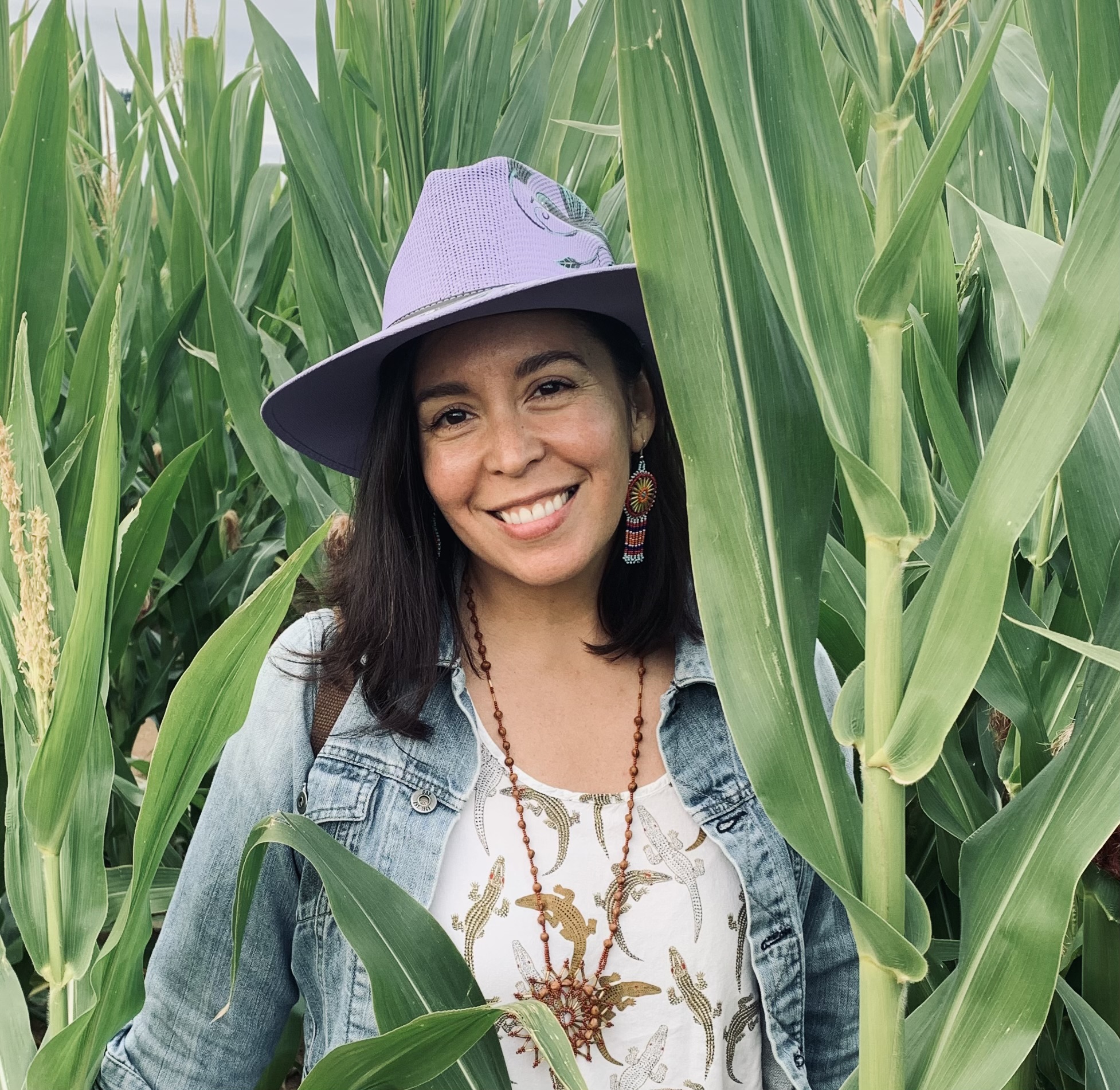 Abigail Bocanegra, MA, LMFT, Mental Health Consultant
Abigail Bocanegra, MA, LMFT, Mental Health Consultant
Barnard Center Leadership Fellow & Instructor
Abigail Bocanegra LMFT is the Founder and Director of Creative Heart Therapies (2018), where she holds positions as a bilingual/bicultural Expressive Arts Psychotherapist and Infant and Early Childhood Mental Health Consultant. She has extensive experience in working with diverse young children and their families in a variety of settings (i.e, community-based mental health agencies in Oakland/San Francisco, early learning/childcare in Spokane, and philanthropic private sectors). She is the co-developer and co-author of The Integrative Cultural Healing Model, a treatment approach intersecting Tribal Traditional Knowledge and Western-based practices to treat trauma and foster ancestral healing for Indigenous children (0-5) and their families. She is also the creator and author of the Family Play Group Curriculum, designed to strengthen and support relationships between young children and their parents residing at Rising Strong - a Family-Centered Treatment Center.
She provides Reflective Practice and IECMH Consultation for Spanish-Speaking Bilingual clinicians serving young children and their families. As a consultant, she offers educational workshops and training aligned with core competencies and field expertise in diversity, equity, and inclusive practices as foundational to attachment, trauma, family systems, workforce development, and organizational systems. She currently practices as an Expressive Arts Psychotherapist, utilizing culturally resonant arts practices serving families impacted by colonial intergenerational trauma, racialized trauma, and discriminatory systemic immigration policies. Along with DEI advocacy, her practice and consultancy are strongly influenced by her lived experience as First Generation Mexican-American/ Chicanx. Her practice is grounded in Nahuatl Philosophy of In Ixtli In Yolotl - a pursuit of a life purpose, living in alignment with wisdom in consciousness and the strength and guidance of the heart.
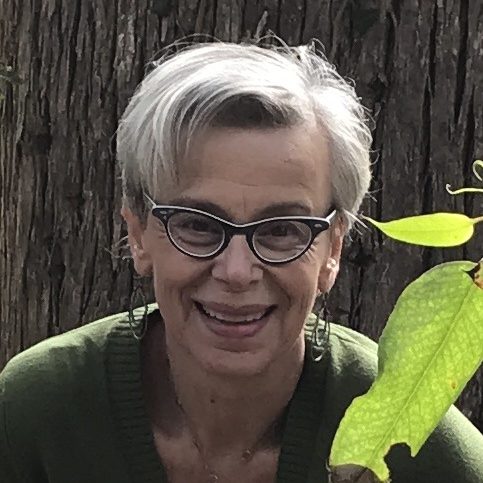 Kadija Johnston, LCSW
Kadija Johnston, LCSW
Kadija Johnston is an independent consultant with extensive experience working with and on behalf of infants, children, and families. As the former Director of the Infant-Parent Program at the UCSF Department of Psychiatry at ZSFG, Ms. Johnston developed the program’s approach to early childhood mental health (ECMH) consultation which now serves as a model for other organizations, both locally and around the world. She has provided training in ECMH consultation to clinicians in 22 states and is consulting on the development of services in Taiwan.
Ms. Johnston writes and lectures nationally on ECMH consultation including publications in Zero to Three, Infant Mental Health Journal and the 3rd edition of the Handbook of Infant Mental Health. Her co-authored book, Mental Health Consultation in Child Care: Transforming Relationships With Directors, Staff, and Families, was awarded the Irving B. Harris Book Award for contributions to early childhood scholarship. Ms. Johnston is active in local and national organizations involving infancy and early childhood mental health, including West Ed’s Program for Infant-Toddler Caregivers Home Visiting Training, The Infant Mental Health Task Force, the Early Head Start National Resource Center at Zero to Three; and the Irving B. Harris Foundation Professional Development Network for Training and Diversity in Leadership in the Early Childhood Mental Health Field. She is also an expert advisor for the SAMHSA-supported Center of Excellence in ECMH Consultation.
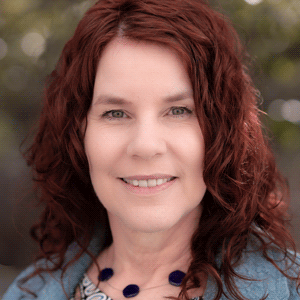 Monica Oxford, MSW, PhD
Monica Oxford, MSW, PhD
Dr. Monica Oxford is a Research Professor in Child, Family, and Population Health Nursing at the University of Washington and the Executive Director of the Barnard Center for Infant Mental Health and Development. Her research focuses on early parenting and child developmental outcomes for vulnerable families living in challenging environments. Dr. Oxford’s interest is in how context, parenting, and child characteristics combine to inform particular patterns of child outcomes and how intervention services promote both caregiver and child well-being. Dr. Oxford is also involved in training social service providers throughout Washington on infant mental health, strengths-based practice, and how providers can support caregiver-child dyadic interaction from an attachment-based perspective.
Dr. Oxford is principal investigator of four NIH grants; the first three are aimed at examining the impact of Promoting First Relationships® (PFR: Kelly et al, 2008). PFR is a brief 10-week home visiting program that is strengths and relationship-based video feedback program. These three studies are randomized control trials in three populations: one RCT for parents involved with child protective services, one RCT for reunified birth families, and one RCT for American Indian families in a rural setting. The fourth NIH grant is aimed at addressing the interaction between family, school, child, and contextual risk such as poverty and early child developmental outcomes Dr. Oxford is also co-principal investigator on three NIH funded RCT testing the effectiveness of PFR in three additional populations (foster care, perinatal mental health setting, and American Indian rural setting).
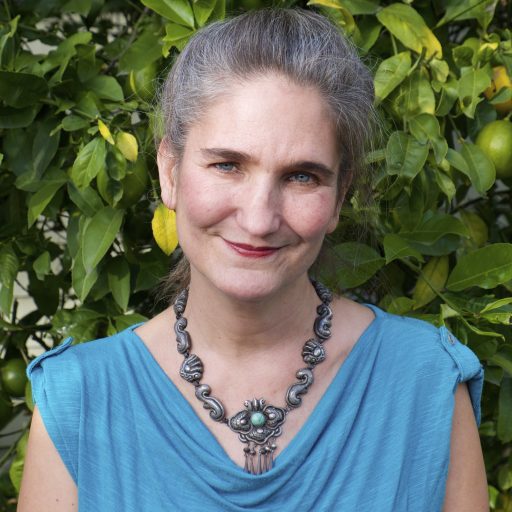 Maria St. John, PhD, MFT
Maria St. John, PhD, MFT
Dr. Maria Seymour St. John is an Associate Clinical Professor with the UCSF Department of Psychiatry and Co-Director of Training for the Infant-Parent Program. Endorsed by the California Center for Infant-Family and Early Childhood Mental Health as an Infant-Family and Early Childhood Mental Health Specialist, a Reflective Facilitator II and a Mentor, Dr. St. John’s areas of expertise include infant-parent psychotherapy, diversity and inclusion, and reflective supervision. Dr. St. John is licensed as a marriage and family therapist and completed her doctoral training in the UC Berkeley Department of Rhetoric, an interdisciplinary critical studies program. She has published on subjects related to race, class, gender and sexuality in infant mental health work in numerous books and journals including Infant Mental Health Journal, Zero to Three, Feminist Studies, Studies in Gender and Sexuality, Attachment and Sexuality, and the World Association of Infant Mental Health Handbook of Infant Mental Health. She is a core member of a collaborative group that publishes and trains on the Diversity-Informed Infant Mental Health Tenets, which are being disseminated via the Irving B Harris Foundation, Zero to Three: the National Center for Infants, Toddlers and Families, and the World Association of Infant Mental Health. Her book, Focusing on Relationships: An Effort That Pays was published by Zero to Three in 2019.
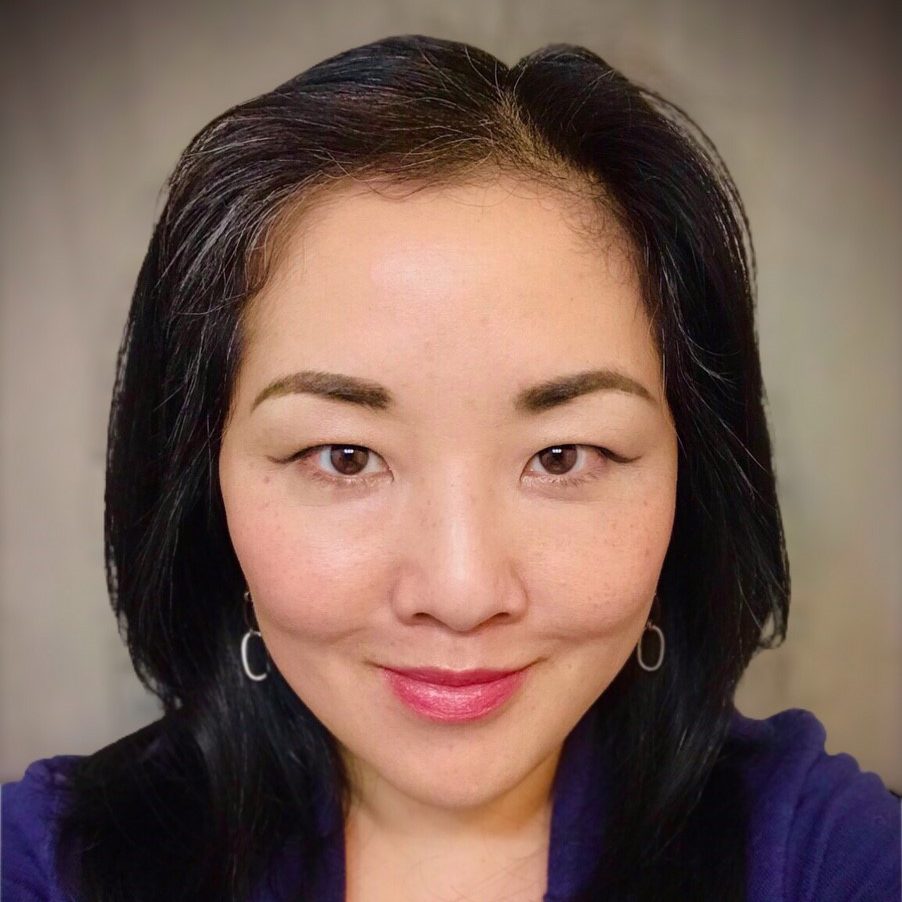 Haruko Watanabe, MA, LMHC, IMH-E®
Haruko Watanabe, MA, LMHC, IMH-E®
Barnard Center Leadership Fellow & Instructor
Haruko Watanabe is a Washington Association for Infant Mental Health endorsed Infant Mental Health Mentor and Program Manager at Navos Infant and Early Childhood Mental Health Program in King County, WA. Haruko began studying parent-child interactions in 1998 under the mentorship of Dr. Kathryn Barnard, and has worked with families with young children within various systems (e.g. child-welfare, early intervention, childcare/early learning, mental health) since 2003. In addition to her Child-Parent Psychotherapy work with Medicaid eligible families, she provides reflective supervision/consultation and early childhood mental health consultation to providers serving young children and their families in King County. Haruko is committed to engaging in shared learning with colleagues and communities to explore how impacts of trauma and racism show up in everyday practices and systems functioning, and ways to promote relationship-based healing in communities and organizations. Her clinical perspective and consultation/mentoring practices have been informed by her personal experiences as an immigrant and having lived in three different countries. She is a former Board Member for the Washington Association for Infant Mental Health and is a member of the World Association for Infant Mental Health.
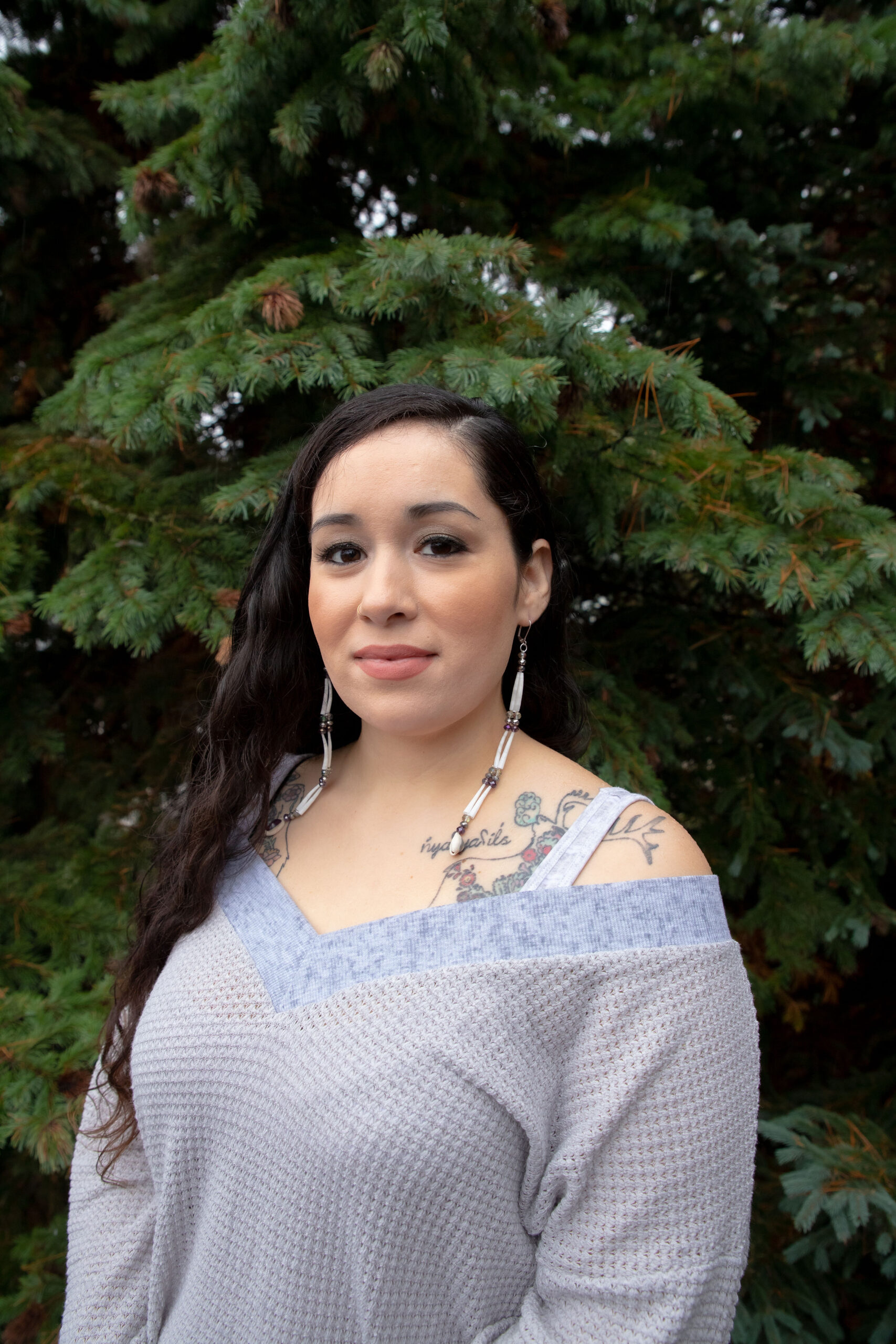
Cree Whelshula
Cree Whelshula has been involved in Salish language revitalization since the age of seven, as both her parents were second language learners and teachers. For the past year, Cree has been an independent consultant and the Founder and Executive Director of kʷu cnxiʔ nonprofit corporation. Through this work and supportive partners, Cree has established a council of First Language Okanagan Speakers to guide recreating education in a culture first approach aimed at improving mental health of youth through culture and language revitalization. As an independent consultant she has worked with Outma Language and Culture School, WA State Office of the Superintendent of Public Instruction, Muckleshoot Language Program, Salish Kootenai College Salish Language Educator Program, and more, to provide language and native education consultation. Previously, Cree has served as the Training and Technical Assistance Director for the national Native Language Community Coordination Center. In this role, Cree provided national training and support to a cohort of five language grantees. In addition, Cree facilitates national workshops for language programs across the United States and Canada in various areas such as language transfer, curriculum, resource development, strategic planning, assessment, community outreach, how culture impacts neurobiology of mental health, neurobiology of culture and language, early childhood brain development, team building and communication, and more. Other experience includes Language Program Manager, Head Start Teacher, Curriculum Developer, Tribal language Immersion School Teacher, College Instructor, and Teacher Trainee. Lastly, Cree advocates on a state and national level in mental health of indigenous children and is a committee member of FPLC.
 Joyce Yang, MSW
Joyce Yang, MSW
ACT Program Manager
Joyce is the program manager responsible for the day-to-day operations of the Advanced Clinical Training (ACT) program. She graduated with honors from Seattle University with a Bachelor of Administration degree in Management. She later received her Master of Social Work degree from the University of Chicago. She spent the early part of her career working at a social service and immigrant rights non-profit that serves community members from 15 months to end-of-life as a development & outcomes manager.
-
Rebecca Berg -
Marian Birch -
Abigail Bocanegra -
Gloria Castro -
Joy Cosculluela -
Mindy Davis -
Helen Egger -
Lauren Hipp -
Lee Johnson III -
Keoki Kauanoe -
Connie Lillas -
Lisa Mennet -
Ayannakai Nalo -
Carmen Rosa Noroña -
Meghan Schmelzer -
Arietta Slade -
Anne Stone -
Kandace Thomas -
Gil Tippy -
Lindsay Usry -
Martina Whelshula -
Haruko Watanabe -
Kristin Wiggins
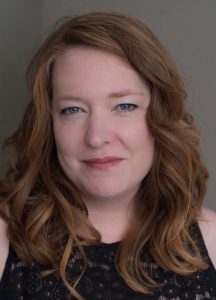 Rebecca Berg, MA OTR/L
Rebecca Berg, MA OTR/L
Rebecca’s passion for understanding social, emotional, and cognitive development first emerged in the field of education, with students ranging from preschool and early elementary special education to undergraduate theatre students. Since earning her master’s degree in occupational therapy from New York University in 2008, Rebecca has continued to nurture this passion through training and mentorship in sensory processing and infant mental health, including certification in the DIR-FCD Model through Profectum and Facilitating Attuned Interactions (FAN) model.
Rebecca’s professional home is Cooper House, an infant mental health clinic in Seattle, where occupational therapists and mental health therapists work in close collaboration and transdisciplinary practice to serve children 0-5 and their families. Her clinical work is characterized by a deep understanding of a child’s developmental capacities and close partnership with caregivers to understand the many moving parts of development within the caregiver/child relationship, their family system, and the community in which they live.
In additional to her clinical work, Rebecca is drawn to individual and organization-level advocacy for trauma-informed, developmentally minded, relationship-based practices. She is a writer and has been an active member of several professional groups and committees, including Profectum’s Communication and Engagement Committee and WA State’s TIC Legislative Advisory Board.
Rebecca continues to enjoy teaching; in recent years, she has taught occupational therapy students at Lake Washington Institute of Technology, presented for WOTA state conferences and Profectum’ national conferences and training program, and presents locally on topics related to the development of play and relationship-based, developmentally minded work for parents, early childhood educators, and other professionals.
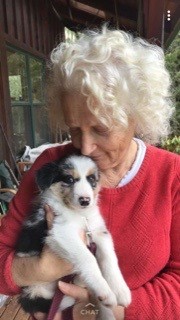
Marian Birch, DMH
Marian Birch is a retired clinical psychologist and infant mental health specialist who lives in Port Angeles, WA. She received a Doctorate in Mental Health from the Department of Psychiatry at the University of California San Francisco in 1983. Her teachers included Erik Erikson and Mary Main. Dr. Birch spent several years as a post-graduate trainee at the Infant-Parent Program founded by Selma Fraiberg at UCSF. Her supervisors there included Jeree Pawl and Alicia Lieberman. Dr. Birch practiced for 12 years in San Francisco, where she taught and supervised in numerous clinical training schemes. Dr. Birch also served as the Clinical Director of the IMH Certificate Program at the UW School of nursing from 2001-2004. From there she has engaged in a variety of projects to support families with young children including developing a dyadic intervention called BabyLink and intensive home-visiting program called the CARE Project. Since her retirement, she has learned to play the harp, studied Chinese, and done lots of kayaking, snowshoeing, gardening, yoga and cooking in the home she and her husband built in the foothills of the Olympic Mountains.
Abigail Bocanegra, MA, LMFT, Mental Health Consultant
Bio to come.
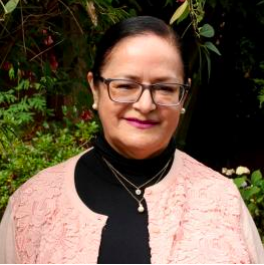 Gloria Castro, PsyD
Gloria Castro, PsyD
Gloria Castro is a clinical psychologist and Certified Sexual Assault Counselor. Dr. Castro was granted the Fraiberg-Harris Fellowship to complete her postdoctoral training at the Infant-Parent Program, UCSF. Dr. Castro's clinical work has focused on infant mental health and mental health daycare consultation. She has experience conducting comprehensive psychological assessments and developmental neuropsychological assessments for children ranging in age from infancy to adolescence. Dr. Castro is currently working at Child Trauma Research Program on the implementation of Child-parent Psychotherapy during pregnancy and the perinatal period. Dr. Castro provides psychotherapy to pregnant women with history of traumatic experiences throughout pregnancy, labor, delivery and post-partum at Zuckerberg San Francisco General Hospital (ZSFGH), UCSF. She provides infant mental health services to families and newborns at the NICU and has provided mental health services at the High Risk Pediatric Kempe clinic at ZSFGH. She has worked with children, adolescents, and families in various clinical venues including Rape Trauma Services and North Peninsula Family Alternatives (YMCA), in San Mateo County where she developed and implemented a mental health program for immigrant families. She consults, supervises, and trains mental health providers who work with immigrant families and their children who have experienced significant trauma. Dr. Castro has a strong interest on the impact of immigration on family systems, the intergenerational transmission of trauma, and the impact of trauma on children?s development. Prior to the Infant-Parent Program and Child Trauma Research Program, she worked at the Children's Hospital, National Medical Center in Mexico City and at the National Autonomous University of Mexico (UNAM). She has presented on national and international conferences, and forums on the topics of parenting in a different culture and on the impact of immigration on the sense of self and motherhood identity. In addition to her work at UCSF, Dr. Castro has taught at Argosy University, American School of Professional Psychology. She also served on the Advisory Board.
 Joy Coculluela, MFA, RSME, Cmt
Joy Coculluela, MFA, RSME, Cmt
Joy Cosculluela is a somatic educator, performing artist, and choreographer born in the Philippines and migrated to the SF Bay Area. Joy is artistic director of Wayfinding Performance Group, an ensemble of multicultural artists, and has directed Homing Devices, All that Remains, The Space Between, and Soil. Joy’s works explore themes of home, belonging, and resilience against a backdrop of decolonization and shared humanity. Joy trained and performed with dance pioneer Anna Halprin in Seasons, Spirit of Place, Parades and Changes, and many more. She has presented her practice of weaving embodied creativity, the healing arts, and love for the land in national conferences such as ISMETA and Nature Talks. Joy enjoys collaboration and has worked together with numerous Bay Area artists. She is artistic director of Performance Lab SF and leads classes for adults exploring embodied creativity, nature, and well-being. She has presented “Around the Kitchen Table,” a virtual performance project in response to the Covid pandemic. Joy holds an MFA in Interdisciplinary Arts from Goddard College and teaches movement-based expressive arts and the Life/Art Process® at Tamalpa Institute in Kentfield, CA.
www.wayfindingperformance.com. www.tamalpa.org
Mindy Davis, LICSW
Mindy is a Clinician in Private Practice serving primarily children 0-6 years old. She also provides Clinical and Reflective Supervision in the community to various professionals serving children 0-6. Mindy currently is participating in meetings to help launch Clark County's Safe Baby Court. Mindy also is a trainer for Attachment Vitamins (parenting program) and the ASQ-3 and ASQ-SE2. In the past, Mindy has worked as a Clinician and Clinical Supervisor in community mental health for 20 years. She has presented at statewide Conferences and locally in the Vancouver area on Mitigating the Effects of Toxic Stress and Trauma in Children 0-6 years old.

Helen Egger, PhD
Dr. Helen Egger is a child psychiatrist, early childhood mental health epidemiologist, and digital health innovator. With her daughter, Rebecca Egger, she co-founded Little Otter, an early childhood digital mental health company providing high-quality, family-centered, and accessible mental health care for children ages 0-14 years old and their families.
Founded in the Spring of 2020, Little Otter has raised > $26M in venture-backed funding and is currently available in CA, CO, NC, and FL with plans to be available nationally by early 2023.
Prior to joining Little Otter, Dr. Egger was Chair of the Department of Child and Adolescent Psychiatry at NYU Langone Health and Director of the NYU Child Study Center. She also founded the WonderLab, a digital child mental health research lab.
Before NYULH, Dr. Egger was tenured faculty at Duke. She founded the Early Childhood Mental Health Lab in the Center for Developmental Epidemiology. As creator of the gold-standard preschool mental health interview and seminal studies, Dr. Egger has shaped the science and practice of preschool mental health. She also led an engineering/child psychiatry initiative that created the first pediatric ResearchKit study, Autism & Beyond. At Duke, Dr. Egger served as Vice-Chair and Chief of the Division of Child and Adolescent Psychiatry.
Dr. Egger attended Yale College and Yale School of Medicine. She completed her adult, child, and post-doctoral research training at Duke University School of Medicine.
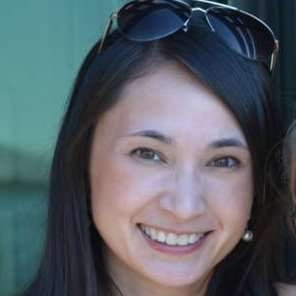 Lauren Hipp, MPA
Lauren Hipp, MPA
Lauren brings nearly a decade of experience in the field of early childhood, where she has worked to advance racial equity through large-scale grassroots organizing and mobilization campaigns, policy development, advocacy, and implementation. Working both across Washington State and at the national level, Lauren has aimed to ensure that policy and programmatic solutions are driven by those communities who are furthest from justice -- by using collaborative leadership strategies, capacity-building training, transparent and accessible communication approaches, and inclusive strategic planning methodologies. Lauren directed a cross-issue policy and advocacy portfolio to advance early childhood mental health and perinatal mental health at the state and national level, led state and national early learning campaigns for MomsRising and led the Policy and Community Partnership efforts for a state-wide public-private partnership focused on early childhood. She holds a Masters of Public Administration from the Evans School of Public Affairs at the University of Washington. Lauren also serves on the the Board of Directors for the Washington State Budget and Policy Center, and is a founding member of the Womxn of Color in Education Committee.
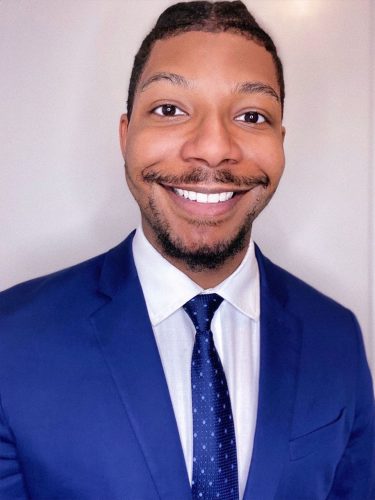 Lee Johnson III, PhD
Lee Johnson III, PhD
Lee Johnson III, Ph.D., CHES®, IMH-E® is Senior Policy Analyst for Infant and Early Childhood Mental Health at ZERO TO THREE (ZTT). Before joining ZTT, Dr. Johnson served as a director at the Alabama Department of Early Childhood Education, extending leadership to early childhood mental health and federal and state-funded home visiting efforts. Dr. Johnson is a former early childhood educator, health educator by training, and a newly minted public health Ph.D. His dissertation focused on the impact of early adverse experiences on the mental & physical health outcomes of Black boys & men and the power of relationships, solidified his selection for the Southern Regional Education Board (SREB) Doctoral Scholars Dissertation Fellowship (2019-2020). In the same year, he became a National Black Child Development Institute (NBCDI) Policy Fellow (2019-2020). Dr. Johnson's NBCDI Policy Fellowship project, Supporting Resilience in Black Families: Advancing Racial Equity in Early Childhood Mental Health Policy (2021), acknowledges the developmental threat our society poses to the health and mental health of Black children and recognizes the need for racially equitable policies and approaches that empower Black families. Lee holds his B.S. in early childhood education, M.A., and Ph.D. degrees in public health from The University of Alabama.
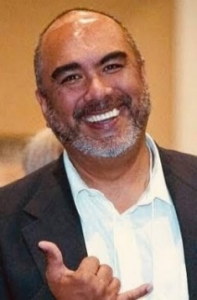
Keoki Kauanoe
Keoki Kauanoe is a native Hawaiian single-father of 4, the Director of Father Engagement at Family Education and Support Services, where he is a Master Trainer for the nationally recognized Nurturing Fathers Program, holds certifications in multiple parenting curricula and is a certified trainer for the QPR Gatekeeper Program. He also sits on the Washington State Interagency Fatherhood Council, The Board of the Equity in Education Coalition and The Thurston Asset Building Coalition.
When not at work or volunteering in his community, Keoki enjoys volunteering at his youngest son's elementary school, light saber duels and Minecraft and Lego builds with his youngest.

Connie Lilas, RN, MFT, PhD
Connie Lillas is the Director of the NeuroRelational Framework (NRF) Research To Resilience Institute (www.nrfr2r.com) with a background in high-risk maternal-child nursing, family systems, developmental psychoanalysis, early intervention, infant mental health, and is a National Graduate ZERO TO THREE Leadership Fellow. Connie has a private practice, specializing in dual diagnosis across both developmental delays and mental health concerns for infants, children, teens, and their families. In addition, she trains locally, nationally, and internationally on the NeuroRelational Framework (NRF, 2009) based upon her co-authored book —Infant/Child Mental Health, Early Intervention, and Relationship-Based Therapies: A NeuroRelational Framework (NRF) for Interdisciplinary Practice, which is a part of W. W. Norton’s Interpersonal Neurobiology Series (www.the-nrf.com). While there are currently four active NRF communities in the US and one in Canada, her work in Los Angeles County focus’ on the largest child welfare system in the US wherein the NRF’s curriculum on toxic stress is being used to train Dept of Child and Family Social Workers. She currently specializes in training cross-disciplinary teams in national and international communities, wherein a common language and shared approach using the NRF can be used for holistic health care outcomes.
Lisa Mennet, PhD, LMHC, IMH-E® (IV)
Lisa Mennet is the Cooper House owner and clinical director emeritus. She began her clinical career at Ryther Child Center, then studied at the Center on Infant Mental Health at the UW, and was later a clinical instructor there. She’s taught infant mental health principles at the UW schools of Social Work and Nursing, and for the Washington DSHS. Lisa earned a certificate in child psychoanalytic psychotherapy from SPSI, and a doctorate in Infant Mental Health from UW. Her particular area of interest is the impact of trauma on early relationships. Lisa provides reflective consultation and supervision to professionals and is trainer for the FAN model.
Ayannakai Nalo, LCSW
Ayannakai Nalo is a CPP rostered licensed clinical social worker and has been working with children and families for 30 years. Ms Nalo is an early childhood mental health consultant and provides training, technical assistance, and consultation to public health systems, hospitals, and community, state, and national organizations in the areas of infant mental health, early intervention, mental health consultation, reflective supervision and issues of diversity and inclusion.
Additionally, The California Center for Infant-Family and Early Childhood Mental Health has endorsed Ms. Nalo as an Infant-Family and Early Childhood Mental Health Reflective Practice Facilitator Mentor. As a member of the Harris Foundation TENETS Work Group, Ms. Nalo also trains organizations and mentors individuals in the implementation of the TENETS across infant and early-childhood mental health providers and public health fields. She integrates diversity-informed principles from TENETS and other sources into reflective supervision and infant mental health services.
Carmen Rosa Noroña, LICSW, MSW, MS.Ed., IECMH-E®
Carmen Rosa is the Child Trauma Clinical Services and Training Lead at Child Witness to Violence Project at Boston Medical Center. She is a Child-Parent Psychotherapy National Trainer, an expert faculty of the Diagnostic Classification of Mental Health and Developmental Disorders of Infancy and Early Childhood Training (DC: 0-5) and one of the developers of the Harris Professional Development Network Diversity Informed Tenets for Work with Infants Children and Families Initiative (https://diversityinformedtenets.org) and of the Boston Medical Center Family Preparedness Plan for Immigrant Families. Her practice and research interests are on the impact of trauma on attachment; the intersection of culture, immigration and trauma; diversity-informed reflective supervision and consultation; and on the implementation and sustainability of evidence-based practice in real-world settings. She is a Co-Leader of the Department of Pediatrics Council of Social Justice, Diversity, Equity and Inclusion at Boston Medical Center. In addition, she serves as core faculty of the National Child Traumatic Stress Network’s (NCTSN) Being Anti-Racist is Central to Trauma-Informed Care Initiative, as a member of the NCTSN Steering Committee, and as a co-chair of the NCTSN Latin American Families Collaborative group. Ms. Noroña has adapted and translated materials for Spanish-speaking families affected by trauma and has also contributed to the literature in infant and early childhood mental health, diversity and immigration
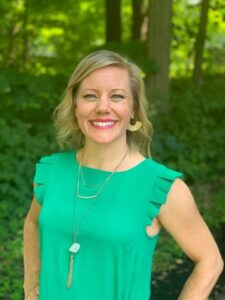
Meghan Schmelzer, MSW, IECMH-E
Meghan is the Senior Manager of the Infant and Early Childhood Mental Health (IECMH) Policy Team within ZERO TO THREE. Within this role, she supports states and grantees with technical assistance through multiple projects such as the SAMHSA IECMH Technical Assistance Center. With an emphasis on building relationships and imbedding reflective practice, both at the individual and systems levels, Meghan supports state and community leaders to build IECMH into all aspects of the early childhood system. Previous to this role, she was the IECMH Coordinator for the State of Michigan, supporting the state’s IECMH Consultation team. Meghan began her career as an infant mental health home-based clinician and worked mostly with families in the child welfare system in Flint, Michigan. Meghan is a licensed clinical social worker and is endorsed by the Michigan Association of Infant Mental Health as a Mentor in both Clinical and Policy categories.
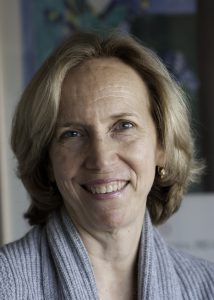
Arietta Slade, PhD
Arietta Slade is Professor of Clinical Child Psychology at the Yale Child Study Center. An internationally recognized theoretician, clinician, researcher, and teacher, she has written widely on the development of parental reflective functioning, as well as the implications of attachment and mentalization theory for child and adult psychotherapy, and for relationship-based infant mental health practice. She is a Co-Founder and Director of Training of Minding the Baby®, an evidence-based interdisciplinary reflective home visiting program for high-risk mothers, infants, and their families, at the Yale Child Study Center and School of Nursing. Dr. Slade is a winner of the Bowlby-Ainsworth Award from the New York Attachment Consortium, and author, with Jeremy Holmes, of Attachment in Therapeutic Practice (Holmes & Slade, SAGE Publications, 2018), and editor of the six volume set, Major Work on Attachment (Slade & Holmes, SAGE Publications, 2014), of Mind to Mind: Infant Research, Neuroscience, and Psychoanalysis (Jurist, Slade, & Bergner, Other Press, 2008), and Children at Play (Slade & Wolf, Oxford University Press, 1994). Currently, she and her Minding the Baby® colleagues are writing a book on reflective parenting (Forthcoming, Guilford, 2021). She has also been in private practice for nearly 40 years, working with individuals of all ages.
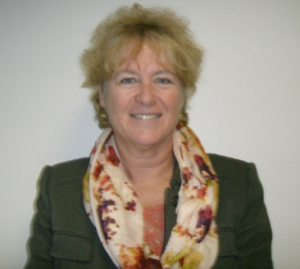
Anne Stone, MA
Anne Stone is the Early Childhood Innovation Director at the Washington State Department of Social and Health Services, Economic Services Administration. A central part of that role is as the director of the Washington Interagency Fatherhood Council which launched in 2018.
Anne has 30 plus years of experience in the child and family services field as an innovator and change agent in youth and family crisis, child healthcare transformation, early childhood systems, poverty reduction, and fatherhood inclusion, as a funder, non-profit executive director, community consultant, crisis counselor, and state agency innovator.
She has a strong value around affecting root causes of family struggle such as racism, poverty and bias, using human centered design grounded in early brain science to inform system and policy change. She works to reduce burdens of families needing to be “empowered” to survive toward fixing broken systems so that families can access what they need to flourish.
As the Washington State First 1,000 Days Initiative founder she works with a variety of broad based community coalitions to walk with them as they seek ways to find families experiencing high levels of stress as early as possible after the birth of a child, triage their need and resiliency, and seek to create a coordinated community response that reduces that stress we know is so detrimental to developing young brains.
When not working her focus is on her family with a new grandbaby on the way, gardening during COVID 19 to grow food and sooth the soul, paddling and hiking with her partner of 35 years.
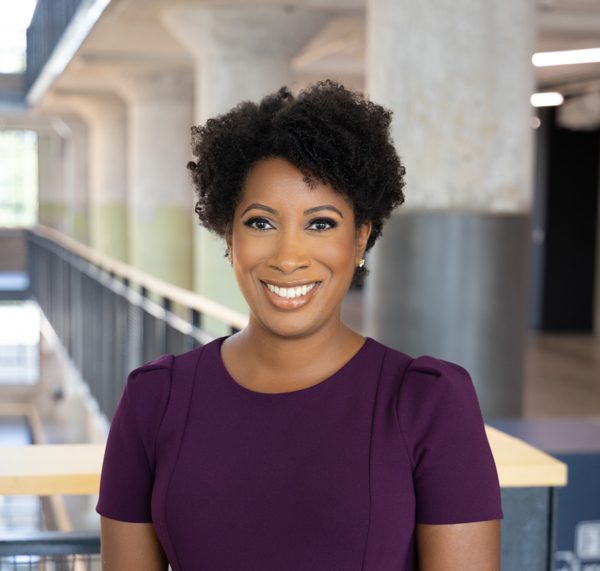 Kandace Thomas, MPP, PhD
Kandace Thomas, MPP, PhD
Kandace Thomas, MPP, PhD, works to help individuals, programs and systems of care experience transformation by learning, doing and being. Currently, Kandace is the Executive Director of First 8 Memphis, an organization working to build Memphis and Shelby County Tennessee’s early care and education system. As the inaugural Executive Director, Kandace is building a start-up organization partnering with the community to implement its early childhood plan. Prior to joining First 8 Memphis, Kandace was a senior program officer at the Irving Harris Foundation where she worked with organizations integrating early childhood development and child trauma-informed best practices for children from birth to age eight. Kandace led the creation of the Diversity-Informed Tenets for Work With Infants, Children and Families, a framework and approach to help organizations and systems integrate a diversity, equity and inclusion principles into their work. Kandace has research, policy and practice interests in contemplative self-care, intergenerational trauma, building power to influence public policy and diversity-informed practice.

Gil Tippy, PsyD
Gil Tippy, author of Respecting Autism with Stanley Greenspan, MD, offers Evaluations, Direct Services, and Consulting to private individuals and organizations. He is the Clinical Director Emeritus of Shrub Oak International School, in Westchester County, NY. He is a Clinical Psychologist, licensed in the State of New York, with his Psychology license in California in process. He is the Chief Clinical Advisor of the Envision Center in Verona, NJ and is an Expert DIR/Floortime Provider and Teacher. He lives and has a private practice, Respectrum Developmental Services, as well as a not-for-profit, Dirty Hands Developmental Alliance, in Sonoma County, California.
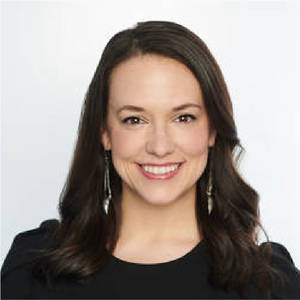 Lindsay Usry, MPH
Lindsay Usry, MPH
Lindsay Usry is the Director of Infant and Early Childhood Mental Health (IECMH) at ZERO TO THREE. She guides ZERO TO THREE’s policy agenda on infant and early childhood mental health (IECMH) and leads related technical assistance projects and collaborations, working at the state and federal levels to increase access to and utilization of high-quality mental health services for young children and their caregivers. She formerly served as Director of Special Projects for the Institute of IECMH at Tulane University School of Medicine, where she is on faculty. She also served as the Louisiana Early Childhood Comprehensive Systems Coordinator for the LA Department of Health and Hospitals, Office of Public Health. Her work has focused primarily on the translation and dissemination of research on IECMH and development to inform policy and programming decisions.
Ms. Usry received her BS in Neuroscience from the College of William and Mary and her Master of Public Health from Tulane University. She is a member of the board of the Maryland-DC Association of Infant Mental Health, and formerly sat on the Louisiana Governor’s Children’s Cabinet Advisory Board. She has previously worked with the U.S. Government Secretariat for Children in Adversity at the U.S. Agency for International Development (USAID) as well as The World Bank. She has worked on international and domestic public health initiatives and also taught elementary special education.

Martina Whelshula, PhD
Martina Whelshula is a member of the Arrow Lakes Nation of the Colville Indian Reservation. Her educational and experiential background is diverse and focuses primarily in the fields of education and behavioral health. She possesses a doctoral degree in Traditional Knowledge, a Master of Arts degree in Counseling Psychology, and a Bachelor of Arts degree in Communication Studies, with an additional certification for Chemical Dependency Professional. Dr. Whelshula has worked extensively with Native American communities nation-wide in the areas of local and national policy development, education, and behavioral health. Dr. Whelshula’s professional experience has ranged from Research Director for national Indian health policy development for Congressional review, P-12 tribal language instructor in the public-school system, Head Start Director for the Colville Tribe to Tribal College President. She is an educator, trainer, and consultant specializing in education and intergenerational trauma impacting indigenous communities. Dr. Whelshula’s most recent work is the development of integrative cultural therapeutic model addressing trauma, mental health and substance use disorders for tribes. Dr. Whelshula served for nearly seven years as the Executive Director of a Native American inpatient treatment program for drug and alcohol addicted youth. Her successes during her tenure include: National iAward for revolutionary behavioral health care (honorable mention), Washington State Co-Occurring Disorders and Treatment Conference’s Innovative Program of the Year, Potlatch Foundation’s Educational Leadership Award, Washington State Public Health’s 2013 Health Champion for Empowering Healthy Communities, Harvard University Medical School’s online BASIS Editorial Board, and the Spokane Regional 2014 AGORA Business Award for the Large Nonprofit Category. In addition to her work experience, Dr. Whelshula served on Gonzaga University’s Indian Education Advisory Board, as Chair of Spokane’s NAACP Education Committee, the Chair pro-tem for the Washington State Native American Education Advisory Committee with the Office of Superintendent of Public Instruction, a member of the Washington State Native American Think Tank, member of the Washington State Multi-Ethnic Think Tank, and formerly with the Washington State Board of Education’s Equity Committee.
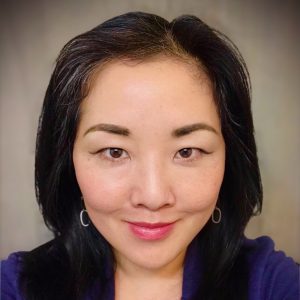 Haruko Watanabe, LMHC, IMH-E®
Haruko Watanabe, LMHC, IMH-E®
Haruko is a Washington Association for Infant Mental Health endorsed Infant Mental Health Mentor and Program Manager at Navos Infant and Early Childhood Mental Health Program in King County, WA. Haruko began studying parent-child interactions in 1998 under the mentorship of Dr. Kathryn Barnard, and has worked with families with young children within various systems (e.g. child-welfare, early intervention, childcare/early learning, mental health) since 2003. In addition to her Child-Parent Psychotherapy work with Medicaid eligible families, she provides reflective supervision/consultation and early childhood mental health consultation to providers serving young children and their families in King County. Haruko is committed to engaging in shared learning with colleagues and communities to explore how impacts of trauma and racism show up in everyday practices and systems functioning, and ways to promote relationship-based healing in communities and organizations. Her clinical perspective and consultation/mentoring practices have been informed by her personal experiences as an immigrant and having lived in three different countries. She is a former Board Member for the Washington Association for Infant Mental Health and a part-time instructor at UW Barnard Center on Infant and Early Childhood Mental Health's Advanced Clinical Training Program.
Kristin Wiggins
Kristin has more than 20 years experience in government affairs, strategic advising, and policy analysis. Her lobbying work focuses predominantly on early learning, children’s behavioral health, and issues that impact children, youth, and families. Due to her multi-dimensional experience as legislative staff, non-profit leadership, a teacher (including working with special needs populations) and education advisor, and a mental health peer support worker she has a strong comprehension of the levers of change at the community, budget, and policy levels. Kristin is a volunteer in her children’s public schools and enjoys outdoor adventures with her family, fitness, and gardening.
-
Clark Baim -
Jess Bernal -
Gloria Castro -
Myisha Driver -
Lauren Hipp -
Lee Johnson III -
Marva Lewis -
Connie Lillas -
Monica McLemore -
Lisa Mennet -
Carmen Rosa Noroña -
Rhonda Norwood -
Meghan Schmelzer -
Arietta Slade -
Siemone Smith -
Kandace Thomas -
Gil Tippy -
Martina Whelshula -
Kristin Wiggins
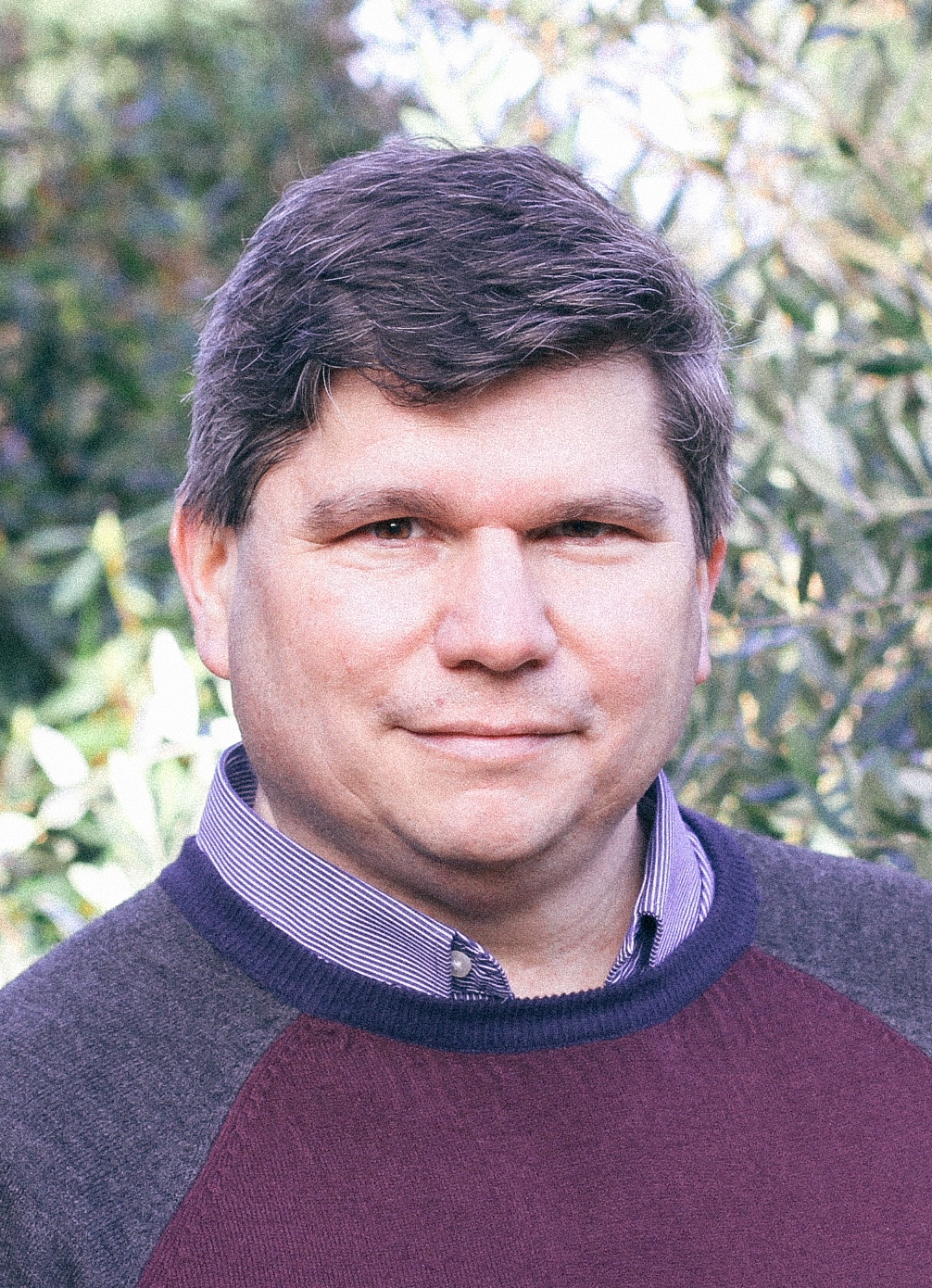 Clark Baim, PhD
Clark Baim, PhD
Clark Baim, PhD. is a psychotherapist (UKCP, BPA), clinical supervisor, group leader and organisational consultant with more than 25 years of experience working in the UK and internationally. He has had a primary focus on the DMM since 2000 and is on the faculty of the Family Relations Institute.
Clark is a registered psychotherapist and senior trainer with the British Psychodrama Association, Co-Director of Change Point Learning and Development, and Director of the Birmingham Institute for Psychodrama (UK). He has a particular focus on psychotherapy in forensic settings, including prisons, young offender institutions and forensic hospitals. In the 1990s, Clark worked as a group psychotherapist at HM Prison Grendon, near Aylesbury, Bucks. He served as a Lead National Trainer for the Probation Service’s sexual offending intervention programmes in the UK from 2000-2012. From 2017 to 2022, he served as the Honorary President of the British Psychodrama Association and is a recipient of the BPA’s Lifetime Achievement Award (2018). He has had past honorary fellowships at the University of Birmingham, the University of Exeter, and is a current Honorary Associate of Berry Street, Melbourne, Australia.
A native of Chicago, Clark settled in Birmingham, UK in the 1980s. He has worked in 20 countries and has facilitated workshops and clinical and staff training sessions in more than 230 institutions and organisations. He has presented workshops and keynote addresses at more than 100 professional conferences. He has published widely on topics including attachment theory, psychotherapy, offender rehabilitation, co-working and therapeutic uses of theatre. Among these publications, he co-authored with Tony Morrison the best-selling book, Attachment-based Practice with Adults: Understanding Strategies and Promoting Positive Change (Pavilion Publishing, 2011). In 2022, he published the companion volume, Attachment-based Practice with Children, Adolescents and Families, which he co-authored with Lydia Guthrie, Dr Ezra Loh and Dr Satbinder Kaur Bhogal.
Clark is a board member and founder member of the IASA – International Association for the Study of Attachment (www.iasa-dmm.org). His current work is focused on participation in research associated with the DMM, on DMM trainings – namely the Adult Attachment Interview and Attachment and Psychopathology (in Australia) – and on applications of the DMM to mental health treatment, child protection and offender rehabilitation.
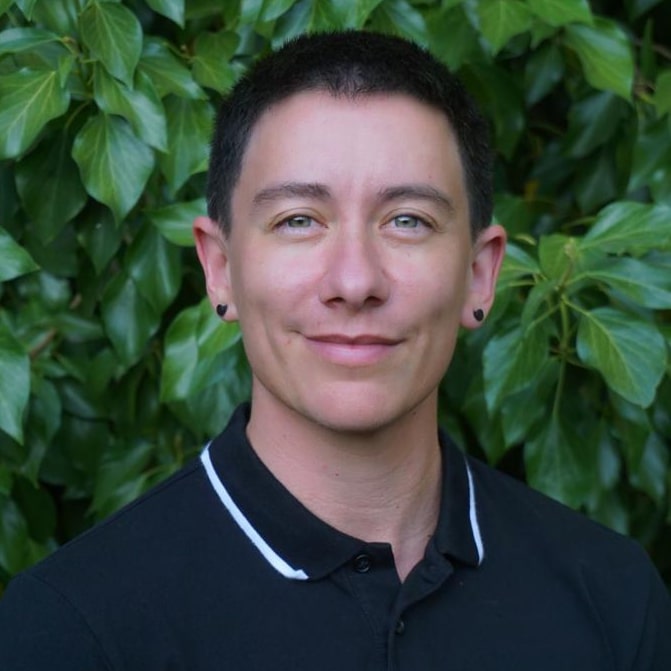 Jesse Bernal, LMFT (He/They)
Jesse Bernal, LMFT (He/They)
Jess Bernal is an Infant and Early Childhood Mental Health Consultant and Licensed Marriage and Family Therapist who holds a master’s degree in Counseling Psychology and a certification of specialization in Applied Behavior Analysis. They have spent over 15 years working with the birth to five population, specifically focusing on infant and early childhood mental health, neural and social/emotional development, inclusion of children with diverse learning needs, staff and caregiver wellness, and mitigating the long-term effects of early childhood trauma. In addition, Jess is an adjunct professor at Pacific Oaks College in Pasadena, CA for both the School of Cultural and Family Psychology and the School of Education and has served as a research associate to authors in the field such as Dr. Daniel Seigel and Dr. Barbara Stroud. He provides consultation and training to multiple Head Start and Early Head Start programs across the country and is a nationwide speaker and presenter. Jess strives to increase the general understanding of social/emotional development and behavior through a trauma-informed lens, while always staying true to the core values of inclusion, diversity, and social justice.
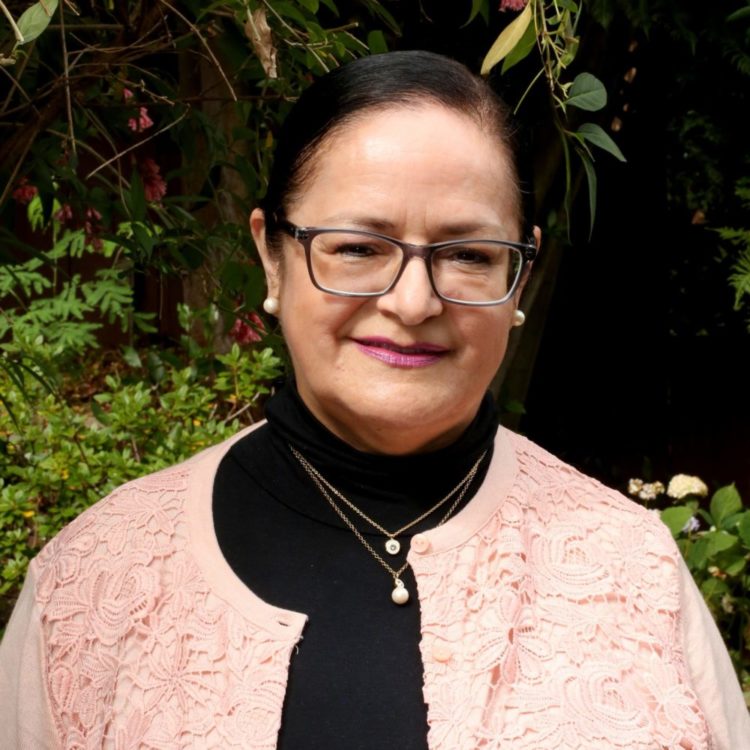 Gloria Castro, PsyD
Gloria Castro, PsyD
Gloria Castro is a clinical psychologist and Certified Sexual Assault Counselor. Dr. Castro was granted the Fraiberg-Harris Fellowship to complete her postdoctoral training at the Infant-Parent Program, UCSF. Dr. Castro's clinical work has focused on infant mental health and mental health daycare consultation. She has experience conducting comprehensive psychological assessments and developmental neuropsychological assessments for children ranging in age from infancy to adolescence. Dr. Castro is currently working at Child Trauma Research Program on the implementation of Child-parent Psychotherapy during pregnancy and the perinatal period. Dr. Castro provides psychotherapy to pregnant women with history of traumatic experiences throughout pregnancy, labor, delivery and post-partum at Zuckerberg San Francisco General Hospital (ZSFGH), UCSF. She provides infant mental health services to families and newborns at the NICU and has provided mental health services at the High Risk Pediatric Kempe clinic at ZSFGH. She has worked with children, adolescents, and families in various clinical venues including Rape Trauma Services and North Peninsula Family Alternatives (YMCA), in San Mateo County where she developed and implemented a mental health program for immigrant families. She consults, supervises, and trains mental health providers who work with immigrant families and their children who have experienced significant trauma. Dr. Castro has a strong interest on the impact of immigration on family systems, the intergenerational transmission of trauma, and the impact of trauma on children?s development. Prior to the Infant-Parent Program and Child Trauma Research Program, she worked at the Children's Hospital, National Medical Center in Mexico City and at the National Autonomous University of Mexico (UNAM). She has presented on national and international conferences, and forums on the topics of parenting in a different culture and on the impact of immigration on the sense of self and motherhood identity. In addition to her work at UCSF, Dr. Castro has taught at Argosy University, American School of Professional Psychology. She also served on the Advisory Board.
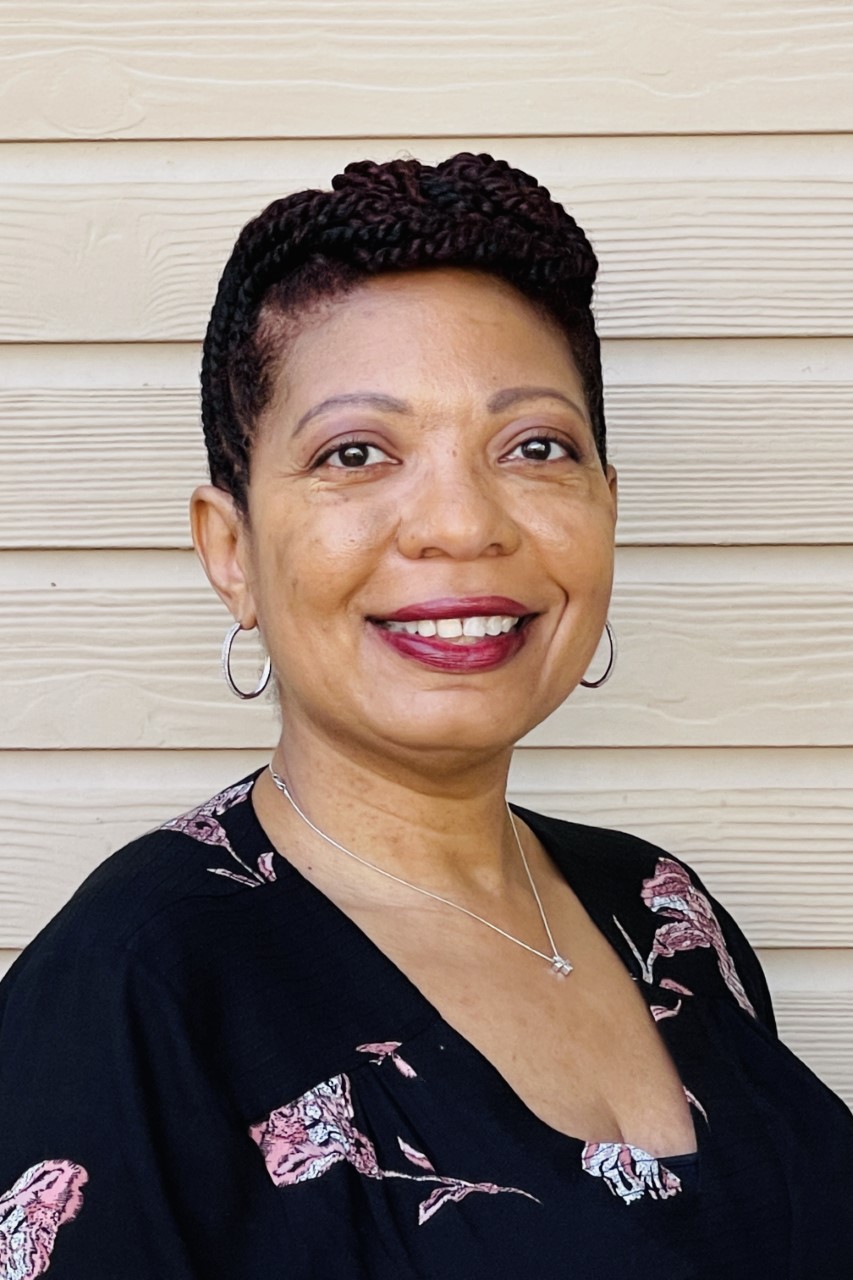
Myisha Driver, PhD., LMFT IFECMH Endorsement - Reflective Practice Facilitator II
Dr. Myisha Driver-Woods is a licensed clinical psychologist and earned her PhD in Clinical Psychology from Fielding Graduate University. She completed her internship and post-doctoral fellowship training at Children’s Hospital Los Angeles. Myisha earned her B.S. in Psychology from Howard University and M.A. in Counseling Psychology from National University. She is a California Endorsed Infant Family Early Childhood Mental Health Specialist and Reflective Practice Facilitator II and a graduate of the Leadership Education in Neurodevelopmental Disabilities Training Program. Myisha is a proud native of Compton, California and uses her personal and professional experiences to educate others and advocate for social and racial justice. She is a recipient of the Diane Kipnes Endowed Fund for Social Innovation Award and serves as a co-chair on the CalAIHM Social Justice Committee. She also serves as a board member for PSYCHES of COLOR, a non-profit organization focused on supporting Black and Lainx youth.
 Lauren Hipp, MPA
Lauren Hipp, MPA
Lauren brings nearly a decade of experience in the field of early childhood, where she has worked to advance racial equity through large-scale grassroots organizing and mobilization campaigns, policy development, advocacy, and implementation. Working both across Washington State and at the national level, Lauren has aimed to ensure that policy and programmatic solutions are driven by those communities who are furthest from justice -- by using collaborative leadership strategies, capacity-building training, transparent and accessible communication approaches, and inclusive strategic planning methodologies. Lauren directed a cross-issue policy and advocacy portfolio to advance early childhood mental health and perinatal mental health at the state and national level, led state and national early learning campaigns for MomsRising and led the Policy and Community Partnership efforts for a state-wide public-private partnership focused on early childhood. She holds a Masters of Public Administration from the Evans School of Public Affairs at the University of Washington. Lauren also serves on the the Board of Directors for the Washington State Budget and Policy Center, and is a founding member of the Womxn of Color in Education Committee.

Lee Johnson, III, Ph.D., CHES®, IMH-E®,
Dr. Johnson is Vice President of Policy for the National Black Child Development Institute (NBCDI) and serves as an advisor to the President/CEO. He leads NBCDI's preeminent advocacy and thought leadership initiatives, distinguished research and publications, and equity-advancing public policy and legislative agenda.
Before joining the NBCDI, Dr. Johnson served as Senior Policy Analyst for Infant and Early Childhood Mental Health (IECMH) at ZERO TO THREE (ZTT)—the national leader in infant— toddler policy and program development. He managed an IECMH federal policy portfolio spearheading congressional, national, and state partnerships advocating for supportive childcare and early childhood mental health policies for the Nation's infants and toddlers.
Earlier in his career, Dr. Johnson held appointments in the state of Alabama as director at the Department of Early Childhood Education and state director at First 5 Alabama®, Alabama's Association for Infant and Early Childhood Mental Health. There, he led in expanding early childhood mental health services and supports and boosting families' access to federal and state-funded home visiting programs.
Dr. Johnson holds an Infant Mental Health Endorsement®, an internationally recognized credential for his commitment and contribution to infants, toddlers, and families. He is a Certified Health Education Specialist and a former NBCDI Policy Fellow (2019-2021). Dr. Johnson earned a B.S. in early childhood education, an M.A., and a Ph.D. in public health from The University of Alabama in Tuscaloosa, AL.
With a decade of experience in policy analysis, innovation, and advocacy in early childhood education and public health, Dr. Johnson utilizes his training and lived experience to support the global effort to support early learning and positive health outcomes for all children.
Marva L. Lewis, PhD, IMH-E®
Dr. Lewis is an Infant Mental Health Mentor-Research/Faculty, a sociocultural psychologist, and Associate Professor at Tulane University. She is the Founder and Director of the Place for Natural Connections which provides community-based interventions centered on Blackness to engage parents, build community, and recognize the impact of colorism on infants and young children. Her book, Therapeutic Cultural Routines to Build Family Relationships: Talk, Touch & Listen While Combing Hair© (2021, Springer) is based on a program of research on acceptance or rejection of children and the hair combing task. Since 2011 she served as a national consultant and trainer with the Zero to Three Safe Baby Court Teams on issues of implicit bias, legacies of the historical trauma of slavery, and workforce contributions to racial disparities in the child welfare system. She serves on the Council on Social Work Education Task Force for Infant and Early Childhood Mental Health, and the Anti-racist work group for Infant Mental Health Journal. Her full Curriculum Vitae is available at http://tssw.tulane.edu/.

Connie Lilas, RN, MFT, PhD
Connie Lillas is the Director of the NeuroRelational Framework (NRF) Research To Resilience Institute (www.nrfr2r.com) with a background in high-risk maternal-child nursing, family systems, developmental psychoanalysis, early intervention, infant mental health, and is a National Graduate ZERO TO THREE Leadership Fellow. Connie has a private practice, specializing in dual diagnosis across both developmental delays and mental health concerns for infants, children, teens, and their families. In addition, she trains locally, nationally, and internationally on the NeuroRelational Framework (NRF, 2009) based upon her co-authored book —Infant/Child Mental Health, Early Intervention, and Relationship-Based Therapies: A NeuroRelational Framework (NRF) for Interdisciplinary Practice, which is a part of W. W. Norton’s Interpersonal Neurobiology Series (www.the-nrf.com). While there are currently four active NRF communities in the US and one in Canada, her work in Los Angeles County focus’ on the largest child welfare system in the US wherein the NRF’s curriculum on toxic stress is being used to train Dept of Child and Family Social Workers. She currently specializes in training cross-disciplinary teams in national and international communities, wherein a common language and shared approach using the NRF can be used for holistic health care outcomes.
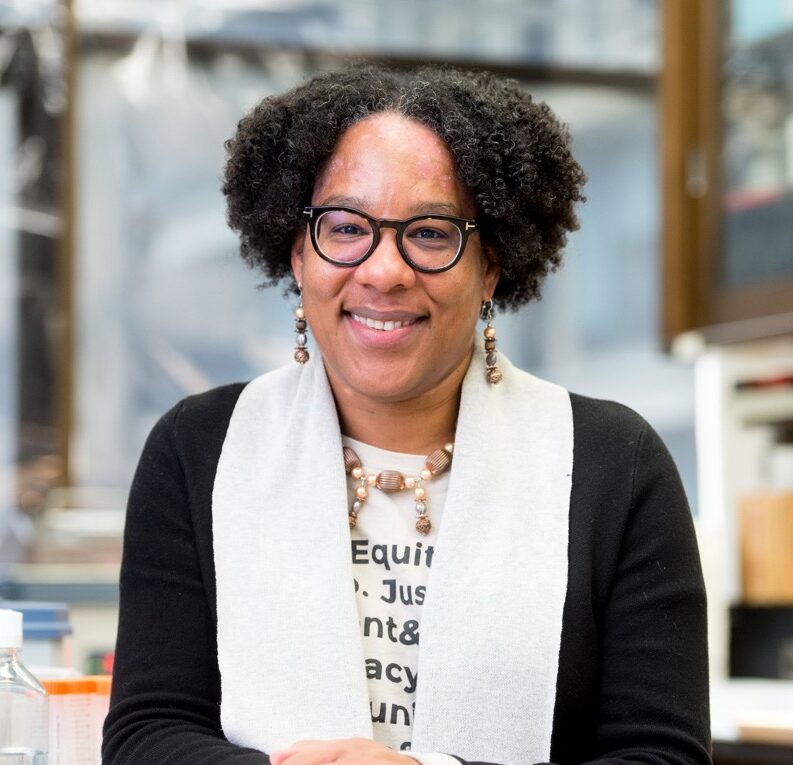
Monica R. McLemore PhD, MPH, RN
At the University of California, San Francisco, Monica McLemore is a tenured associate professor in the Family Health Care Nursing Department, an affiliated scientist with Advancing New Standards in Reproductive Health, and a member of the Bixby Center for Global Reproductive Health. She retired from clinical practice as a public health and staff nurse after a 28-year clinical nursing career in 2019, however, continues to provide flu and COVID-19 vaccines. Her program of research is focused on understanding reproductive health and justice. To date, she has 87 peer reviewed articles, OpEds and commentaries and her research has been cited in the Huffington Post, Lavender Health, five amicus briefs to the Supreme Court of the United States, and three National Academies of Science, Engineering, and Medicine reports, and a data visualization project entitled How To Fix Maternal Mortality: The first step is to stop blaming women that was published in the 2019 Future of Medicine edition of Scientific American. Her work has appeared in publications such as Dame Magazine, Politico, ProPublica/NPR and she made a voice appearance in Terrance Nance’s HBO series Random Acts of Flyness. She is the recipient of numerous awards and currently serves as chair for Sexual and Reproductive Health section of the American Public Health Association. She was inducted as a fellow of the American Academy of Nursing in 2019 and was named the Thelma Shobe Endowed Chair in 2021.
Lisa Mennet, PhD, LMHC, IMH-E® (IV)
Lisa Mennet is the Cooper House owner and clinical director emeritus. She began her clinical career at Ryther Child Center, then studied at the Center on Infant Mental Health at the UW, and was later a clinical instructor there. She’s taught infant mental health principles at the UW schools of Social Work and Nursing, and for the Washington DSHS. Lisa earned a certificate in child psychoanalytic psychotherapy from SPSI, and a doctorate in Infant Mental Health from UW. Her particular area of interest is the impact of trauma on early relationships. Lisa provides reflective consultation and supervision to professionals and is trainer for the FAN model.
Carmen Rosa Noroña, LICSW, MSW, MS.Ed., IECMH-E®
Carmen Rosa is the Child Trauma Clinical Services and Training Lead at Child Witness to Violence Project at Boston Medical Center. She is a Child-Parent Psychotherapy National Trainer, an expert faculty of the Diagnostic Classification of Mental Health and Developmental Disorders of Infancy and Early Childhood Training (DC: 0-5) and one of the developers of the Harris Professional Development Network Diversity Informed Tenets for Work with Infants Children and Families Initiative (https://diversityinformedtenets.org) and of the Boston Medical Center Family Preparedness Plan for Immigrant Families. Her practice and research interests are on the impact of trauma on attachment; the intersection of culture, immigration and trauma; diversity-informed reflective supervision and consultation; and on the implementation and sustainability of evidence-based practice in real-world settings. She is a Co-Leader of the Department of Pediatrics Council of Social Justice, Diversity, Equity and Inclusion at Boston Medical Center. In addition, she serves as core faculty of the National Child Traumatic Stress Network’s (NCTSN) Being Anti-Racist is Central to Trauma-Informed Care Initiative, as a member of the NCTSN Steering Committee, and as a co-chair of the NCTSN Latin American Families Collaborative group. Ms. Noroña has adapted and translated materials for Spanish-speaking families affected by trauma and has also contributed to the literature in infant and early childhood mental health, diversity and immigration
Rhonda G. Norwood, PhD, LCSW-BACS, IMH-E
Dr. Norwood is an Assistant Professor of Professional Practice at the Louisiana State University School of Social Work. She earned her doctorate in social work at Louisiana State University. Dr. Norwood has 20 years of clinical and supervisory experience in a variety of agency settings and private practice. Her area of expertise is infant mental health, which includes working with young children and their families and perinatal mood disorders. Dr. Norwood’s area of research interest includes integrating effective interventions with child welfare services, parental representations of their children, and children’s narratives as representations of their relationships and worlds.

Meghan Schmelzer, MSW, IECMH-E
Meghan is the Senior Manager of the Infant and Early Childhood Mental Health (IECMH) Policy Team within ZERO TO THREE. Within this role, she supports states and grantees with technical assistance through multiple projects such as the SAMHSA IECMH Technical Assistance Center. With an emphasis on building relationships and imbedding reflective practice, both at the individual and systems levels, Meghan supports state and community leaders to build IECMH into all aspects of the early childhood system. Previous to this role, she was the IECMH Coordinator for the State of Michigan, supporting the state’s IECMH Consultation team. Meghan began her career as an infant mental health home-based clinician and worked mostly with families in the child welfare system in Flint, Michigan. Meghan is a licensed clinical social worker and is endorsed by the Michigan Association of Infant Mental Health as a Mentor in both Clinical and Policy categories.
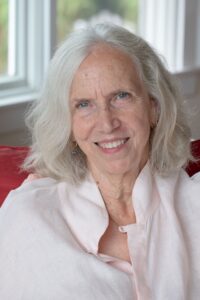
Arietta Slade, PhD
Arietta Slade, Ph.D. is Professor of Clinical Child Psychology at the Yale Child Study Center, and Professor Emerita of Clinical Psychology at the City University of New York. An internationally recognized theoretician, clinician, teacher, and researcher, she has written widely on reflective parenting, the development of parental reflective functioning, and the implications of attachment and mentalization theory for child and adult psychotherapy. She is a Co-Founder and Co-Director of Minding the Baby ™, an evidence-based interdisciplinary reflective home visiting program for high-risk mothers, infants, and their families, at the Yale Child Study Center and School of Nursing. Dr. Slade is winner of the Bowlby-Ainsworth Award from the New York Attachment Consortium, and author of the forthcoming (June, 2023) Enhancing attachment and reflective parenting in clinical practice: A Minding the Baby Approach (Slade, with Sadler, Eaves, and Webb). She is also author, with Jeremy Holmes, of Attachment in Therapeutic Practice (Holmes & Slade, SAGE Publications, 2018), and editor of the six volume set, Major Work on Attachment (Slade & Holmes, SAGE Publications, 2014), as well as Mind to Mind: Infant Research, Neuroscience, and Psychoanalysis (Jurist, Slade, & Bergner, Other Press, 2008), and Children at Play (Slade & Wolf, Oxford University Press, 1994). She has been in private practice for over 40 years, working with individuals of all ages.
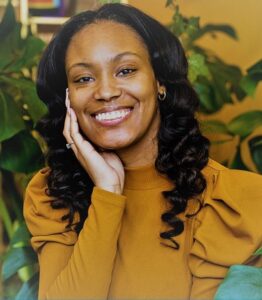 Siemone Smith MA, LPC
Siemone Smith MA, LPC
Siemone has worked in the Infant Mental Health field for over 10 years, with a focus on Trauma Informed practices. She has worked in Chicago’s Englewood area providing trauma focused therapy and support services to families throughout the community and families involved with child protective services. She currently works for Erikson Institute’s Fussy Baby Network, providing support services to families who have concerns with their infants/toddlers. Siemone also works as a Child-Parent Psychotherapy clinician.
 Kandace Thomas, MPP, PhD
Kandace Thomas, MPP, PhD
Kandace Thomas, MPP, PhD, works to help individuals, programs and systems of care experience transformation by learning, doing and being. Currently, Kandace is the Executive Director of First 8 Memphis, an organization working to build Memphis and Shelby County Tennessee’s early care and education system. As the inaugural Executive Director, Kandace is building a start-up organization partnering with the community to implement its early childhood plan. Prior to joining First 8 Memphis, Kandace was a senior program officer at the Irving Harris Foundation where she worked with organizations integrating early childhood development and child trauma-informed best practices for children from birth to age eight. Kandace led the creation of the Diversity-Informed Tenets for Work With Infants, Children and Families, a framework and approach to help organizations and systems integrate a diversity, equity and inclusion principles into their work. Kandace has research, policy and practice interests in contemplative self-care, intergenerational trauma, building power to influence public policy and diversity-informed practice.

Gil Tippy, PsyD
Gil Tippy, author of Respecting Autism with Stanley Greenspan, MD, offers Evaluations, Direct Services, and Consulting to private individuals and organizations. He is a Founder of the Rebecca School in New York City. He is a Founder of, and is the Clinical Director Emeritus of Shrub Oak International School, in Westchester County, NY. He is a Clinical Psychologist, licensed in the States of New York and California. He is the Chief Clinical Advisor of the ICDL Institute in Montclair, NJ, and is an Expert DIR/Floortime Provider and Teacher. He lives and has a private practice, as well as a Public Benefit Corporation, Dirty Hands Developmental Alliance, on Long Island in New York.
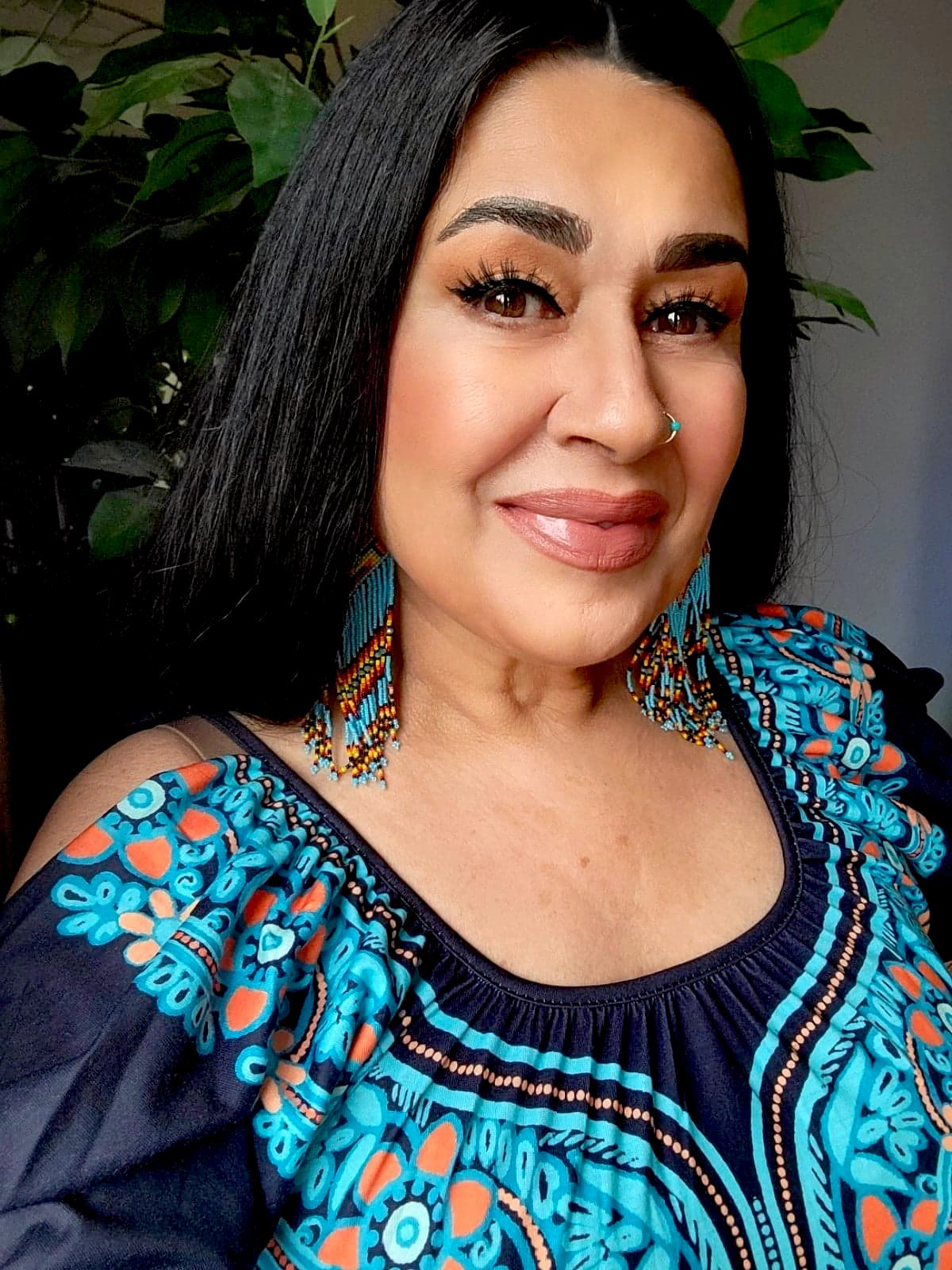
Martina Whelshula, PhD
Martina Whelshula is a member of the Arrow Lakes Nation of the Colville Indian Reservation. Her educational and experiential background is diverse and focuses primarily in the fields of education and behavioral health. She possesses a doctoral degree in Traditional Knowledge, a Master of Arts degree in Counseling Psychology, and a Bachelor of Arts degree in Communication Studies, with an additional certification for Chemical Dependency Professional. Dr. Whelshula has worked extensively with Native American communities nation-wide in the areas of local and national policy development, education, and behavioral health. Dr. Whelshula’s professional experience has ranged from Research Director for national Indian health policy development for Congressional review, P-12 tribal language instructor in the public-school system, Head Start Director for the Colville Tribe to Tribal College President. She is an educator, trainer, and consultant specializing in education and intergenerational trauma impacting indigenous communities. Dr. Whelshula’s most recent work is the development of integrative cultural therapeutic model addressing trauma, mental health and substance use disorders for tribes. Dr. Whelshula served for nearly seven years as the Executive Director of a Native American inpatient treatment program for drug and alcohol addicted youth. Her successes during her tenure include: National iAward for revolutionary behavioral health care (honorable mention), Washington State Co-Occurring Disorders and Treatment Conference’s Innovative Program of the Year, Potlatch Foundation’s Educational Leadership Award, Washington State Public Health’s 2013 Health Champion for Empowering Healthy Communities, Harvard University Medical School’s online BASIS Editorial Board, and the Spokane Regional 2014 AGORA Business Award for the Large Nonprofit Category. In addition to her work experience, Dr. Whelshula served on Gonzaga University’s Indian Education Advisory Board, as Chair of Spokane’s NAACP Education Committee, the Chair pro-tem for the Washington State Native American Education Advisory Committee with the Office of Superintendent of Public Instruction, a member of the Washington State Native American Think Tank, member of the Washington State Multi-Ethnic Think Tank, and formerly with the Washington State Board of Education’s Equity Committee.
Kristin Wiggins
Kristin has more than 20 years experience in government affairs, strategic advising, and policy analysis. Her lobbying work focuses predominantly on early learning, children’s behavioral health, and issues that impact children, youth, and families. Due to her multi-dimensional experience as legislative staff, non-profit leadership, a teacher (including working with special needs populations) and education advisor, and a mental health peer support worker she has a strong comprehension of the levers of change at the community, budget, and policy levels. Kristin is a volunteer in her children’s public schools and enjoys outdoor adventures with her family, fitness, and gardening.
-
Clark Baim -
Christine Jackson Cole -
Myisha Driver -
Lydia Guthrie -
Ayannakai Nalo -
Carmen Rosa Noroña -
Meghan Schmelzer -
Siemone Smith -
Traci Swink -
Kandace Thomas -
Gil Tippy -
Haruko Watanabe -
Martina Whelshula -
Dawn Yazzie
 Clark Baim, PhD
Clark Baim, PhD
Clark Baim, PhD. is a psychotherapist (UKCP, BPA), clinical supervisor, group leader and organisational consultant with more than 25 years of experience working in the UK and internationally. He has had a primary focus on the DMM since 2000 and is on the faculty of the Family Relations Institute.
Clark is a registered psychotherapist and senior trainer with the British Psychodrama Association, Co-Director of Change Point Learning and Development, and Director of the Birmingham Institute for Psychodrama (UK). He has a particular focus on psychotherapy in forensic settings, including prisons, young offender institutions and forensic hospitals. In the 1990s, Clark worked as a group psychotherapist at HM Prison Grendon, near Aylesbury, Bucks. He served as a Lead National Trainer for the Probation Service’s sexual offending intervention programmes in the UK from 2000-2012. From 2017 to 2022, he served as the Honorary President of the British Psychodrama Association and is a recipient of the BPA’s Lifetime Achievement Award (2018). He has had past honorary fellowships at the University of Birmingham, the University of Exeter, and is a current Honorary Associate of Berry Street, Melbourne, Australia.
A native of Chicago, Clark settled in Birmingham, UK in the 1980s. He has worked in 20 countries and has facilitated workshops and clinical and staff training sessions in more than 230 institutions and organisations. He has presented workshops and keynote addresses at more than 100 professional conferences. He has published widely on topics including attachment theory, psychotherapy, offender rehabilitation, co-working and therapeutic uses of theatre. Among these publications, he co-authored with Tony Morrison the best-selling book, Attachment-based Practice with Adults: Understanding Strategies and Promoting Positive Change (Pavilion Publishing, 2011). In 2022, he published the companion volume, Attachment-based Practice with Children, Adolescents and Families, which he co-authored with Lydia Guthrie, Dr Ezra Loh and Dr Satbinder Kaur Bhogal.
Clark is a board member and founder member of the IASA – International Association for the Study of Attachment (www.iasa-dmm.org). His current work is focused on participation in research associated with the DMM, on DMM trainings – namely the Adult Attachment Interview and Attachment and Psychopathology (in Australia) – and on applications of the DMM to mental health treatment, child protection and offender rehabilitation.
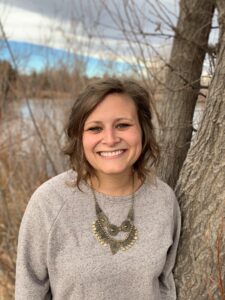
Christine Jackson Cole, LICSW, IMH-E®
Infant Mental Health Mentor (Clinical)
Infant-Early Childhood Mental Health Program Manager
I came into the mental health field excited and eager to work with the youngest members of our communities, kids. I quickly discovered that I wouldn’t get very far without also working with their parents and caregivers. And so began my passion for relationship-based work with children and their families.
I started my career in Denver, Colorado while attending University of Denver’s Graduate School of Social Work focusing on children and families with a specialization in Interpersonal Trauma. From early on in my practice, I have worked with caregivers and their young children from promotion to treatment in a variety of settings. Regardless of the services, I have learned that supporting caregivers in their role is integral to the health and well-being of their children.
Currently, I work at Washington Health Care Authority as the Infant-Early Childhood Mental Health Program Manager. This role has allowed me the opportunity to apply my clinical experiences with families to inform state policy and initiatives. I have the privilege of working alongside those who are providing direct services which has allowed for greater partnership in understanding both the challenges and opportunities for creating more developmentally-appropriate systems and quality care to improve the wellbeing of children and families.

Myisha Driver, PhD., LMFT IFECMH Endorsement - Reflective Practice Facilitator II
Dr. Myisha Driver-Woods is a licensed clinical psychologist and earned her PhD in Clinical Psychology from Fielding Graduate University. She completed her internship and post-doctoral fellowship training at Children’s Hospital Los Angeles. Myisha earned her B.S. in Psychology from Howard University and M.A. in Counseling Psychology from National University. She is a California Endorsed Infant Family Early Childhood Mental Health Specialist and Reflective Practice Facilitator II and a graduate of the Leadership Education in Neurodevelopmental Disabilities Training Program. Myisha is a proud native of Compton, California and uses her personal and professional experiences to educate others and advocate for social and racial justice. She is a recipient of the Diane Kipnes Endowed Fund for Social Innovation Award and serves as a co-chair on the CalAIHM Social Justice Committee. She also serves as a board member for PSYCHES of COLOR, a non-profit organization focused on supporting Black and Lainx youth.
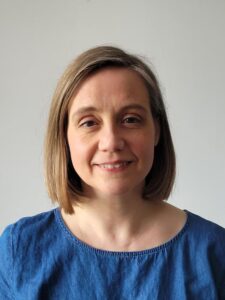
Lydia Guthrie BA (Oxon), MSc, Dip SW, Systemic Psychotherapist
Following a first degree in Politics, Philosophy and Economics, Lydia qualified as a social worker and spent ten years working for the Probation Service, specialising in work with people convicted of sexual and violent offences. She then spent 10 years Co-Director of Change Point Ltd, as a trainer and supervisor across social work, criminal justice, mental health, secure forensic and voluntary sector settings. In 2020, she qualified as a Systemic Psychotherapist / Family Therapist, and has since worked as a family therapist in Child and Adolescent Mental Health Services (National Health Service) and Children’s Services. She is currently employed 4 days a week in a local government Children’s Services department, where she offers family therapy to families with social workers.
Lydia has a keen interest in Patricia Crittenden’s Dynamic Model of Attachment and Adaptation, and has completed an MSc in Attachment Theory. She is trained in several empirical measures of attachment – the Adult Attachment Interview, the Strange Situation Procedure, and the Care Index.
Lydia has co-authored three books and several book chapters, on themes including Attachment Based Practice, supporting the wellbeing of practitioners, and anti-racist practice.
Lydia is a white cis-gender female, and is married with two adult children. She is very motivated by working with families and individuals who are impacted by oppressive social structures, including poverty, racism, health inequalities and migration. In her spare time, she sings in a band!
Ayannakai Nalo, LCSW
Ayannakai Nalo is a CPP rostered licensed clinical social worker and has been working with children and families for 30 years. Ms Nalo is an early childhood mental health consultant and provides training, technical assistance, and consultation to public health systems, hospitals, and community, state, and national organizations in the areas of infant mental health, early intervention, mental health consultation, reflective supervision and issues of diversity and inclusion.
Additionally, The California Center for Infant-Family and Early Childhood Mental Health has endorsed Ms. Nalo as an Infant-Family and Early Childhood Mental Health Reflective Practice Facilitator Mentor. As a member of the Harris Foundation TENETS Work Group, Ms. Nalo also trains organizations and mentors individuals in the implementation of the TENETS across infant and early-childhood mental health providers and public health fields. She integrates diversity-informed principles from TENETS and other sources into reflective supervision and infant mental health services.
Carmen Rosa Noroña, LICSW, MSW, MS.Ed., IECMH-E®
Carmen Rosa is the Child Trauma Clinical Services and Training Lead at Child Witness to Violence Project at Boston Medical Center. She is a Child-Parent Psychotherapy National Trainer, an expert faculty of the Diagnostic Classification of Mental Health and Developmental Disorders of Infancy and Early Childhood Training (DC: 0-5) and one of the developers of the Harris Professional Development Network Diversity Informed Tenets for Work with Infants Children and Families Initiative (https://diversityinformedtenets.org) and of the Boston Medical Center Family Preparedness Plan for Immigrant Families. Her practice and research interests are on the impact of trauma on attachment; the intersection of culture, immigration and trauma; diversity-informed reflective supervision and consultation; and on the implementation and sustainability of evidence-based practice in real-world settings. She is a Co-Leader of the Department of Pediatrics Council of Social Justice, Diversity, Equity and Inclusion at Boston Medical Center. In addition, she serves as core faculty of the National Child Traumatic Stress Network’s (NCTSN) Being Anti-Racist is Central to Trauma-Informed Care Initiative, as a member of the NCTSN Steering Committee, and as a co-chair of the NCTSN Latin American Families Collaborative group. Ms. Noroña has adapted and translated materials for Spanish-speaking families affected by trauma and has also contributed to the literature in infant and early childhood mental health, diversity and immigration
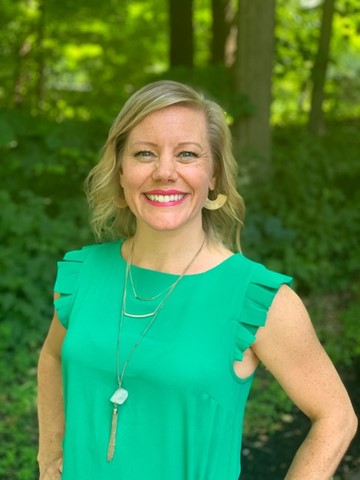
Meghan Schmelzer, MSW, IECMH-E
Meghan is the Senior Manager of the Infant and Early Childhood Mental Health (IECMH) Policy Team within ZERO TO THREE. Within this role, she supports states and grantees with technical assistance through multiple projects such as the SAMHSA IECMH Technical Assistance Center. With an emphasis on building relationships and imbedding reflective practice, both at the individual and systems levels, Meghan supports state and community leaders to build IECMH into all aspects of the early childhood system. Previous to this role, she was the IECMH Coordinator for the State of Michigan, supporting the state’s IECMH Consultation team. Meghan began her career as an infant mental health home-based clinician and worked mostly with families in the child welfare system in Flint, Michigan. Meghan is a licensed clinical social worker and is endorsed by the Michigan Association of Infant Mental Health as a Mentor in both Clinical and Policy categories.
 Siemone Smith MA, LPC
Siemone Smith MA, LPC
Siemone has worked in the Infant Mental Health field for over 10 years, with a focus on Trauma Informed practices. She has worked in Chicago’s Englewood area providing trauma focused therapy and support services to families throughout the community and families involved with child protective services. She currently works for Erikson Institute’s Fussy Baby Network, providing support services to families who have concerns with their infants/toddlers. Siemone also works as a Child-Parent Psychotherapy clinician.
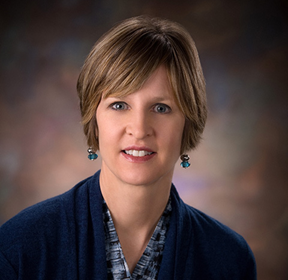 Traci Swink, MD
Traci Swink, MD
Dr. Swink brings three decades of clinical experience, teaching and research grounded in neurodevelopmental, individual differenced and relationship-based care. Dr Swink started her training in pediatrics at the University of California, San Francisco followed by pediatric neurology and epilepsy training at Johns Hopkins Medical Institution. After being introduced to the DIR model in 2003, Dr Swink went on to complete her DIR certificate training in 2009 and a Profectum Academy Certificate in 2014 and joined the senior faculty at Profectum in 2014. Since 2009, Dr Swink has been integrating the DIR model into her clinical practice and teaching. In 2012, Dr. Swink joined the child developmental team at the Marshfield Clinic, providing multidisciplinary identification, understanding and therapeutic supports to parents/caregivers, early interventionists and educators in predominantly rural and under-serviced areas of northern Wisconsin. In 2023, Dr Swink joined the second cohort of Washington state early interventionists training in the NeuroRelational Framework (NRF) and recently joined the NRF faculty. Dr Swink strives to share a neuroscience informed, customized and collaborative approach to care for all individuals and families she serves.
 Kandace Thomas, MPP, PhD
Kandace Thomas, MPP, PhD
Kandace Thomas, MPP, PhD, works to help individuals, programs and systems of care experience transformation by learning, doing and being. Currently, Kandace is the Executive Director of First 8 Memphis, an organization working to build Memphis and Shelby County Tennessee’s early care and education system. As the inaugural Executive Director, Kandace is building a start-up organization partnering with the community to implement its early childhood plan. Prior to joining First 8 Memphis, Kandace was a senior program officer at the Irving Harris Foundation where she worked with organizations integrating early childhood development and child trauma-informed best practices for children from birth to age eight. Kandace led the creation of the Diversity-Informed Tenets for Work With Infants, Children and Families, a framework and approach to help organizations and systems integrate a diversity, equity and inclusion principles into their work. Kandace has research, policy and practice interests in contemplative self-care, intergenerational trauma, building power to influence public policy and diversity-informed practice.

Gil Tippy, PsyD
Gil Tippy, author of Respecting Autism with Stanley Greenspan, MD, offers Evaluations, Direct Services, and Consulting to private individuals and organizations. He is a Founder of the Rebecca School in New York City. He is a Founder of, and is the Clinical Director Emeritus of Shrub Oak International School, in Westchester County, NY. He is a Clinical Psychologist, licensed in the States of New York and California. He is the Chief Clinical Advisor of the ICDL Institute in Montclair, NJ, and is an Expert DIR/Floortime Provider and Teacher. He lives and has a private practice, as well as a Public Benefit Corporation, Dirty Hands Developmental Alliance, on Long Island in New York.

Haruko Watanabe, MA, LMHC, IMH-E®
Haruko Watanabe is a Washington Association for Infant Mental Health endorsed Infant Mental Health Mentor and Program Manager at Navos Infant and Early Childhood Mental Health Program in King County, WA. Haruko began studying parent-child interactions in 1998 under the mentorship of Dr. Kathryn Barnard, and has worked with families with young children within various systems (e.g. child-welfare, early intervention, childcare/early learning, mental health) since 2003. In addition to her Child-Parent Psychotherapy work with Medicaid eligible families, she provides reflective supervision/consultation and early childhood mental health consultation to providers serving young children and their families in King County. Haruko is committed to engaging in shared learning with colleagues and communities to explore how impacts of trauma and racism show up in everyday practices and systems functioning, and ways to promote relationship-based healing in communities and organizations. Her clinical perspective and consultation/mentoring practices have been informed by her personal experiences as an immigrant and having lived in three different countries. She is a former Board Member for the Washington Association for Infant Mental Health and is a member of the World Association for Infant Mental Health.

Martina Whelshula, PhD
Martina Whelshula is a member of the Arrow Lakes Nation of the Colville Indian Reservation. Her educational and experiential background is diverse and focuses primarily in the fields of education and behavioral health. She possesses a doctoral degree in Traditional Knowledge, a Master of Arts degree in Counseling Psychology, and a Bachelor of Arts degree in Communication Studies, with an additional certification for Chemical Dependency Professional. Dr. Whelshula has worked extensively with Native American communities nation-wide in the areas of local and national policy development, education, and behavioral health. Dr. Whelshula’s professional experience has ranged from Research Director for national Indian health policy development for Congressional review, P-12 tribal language instructor in the public-school system, Head Start Director for the Colville Tribe to Tribal College President. She is an educator, trainer, and consultant specializing in education and intergenerational trauma impacting indigenous communities. Dr. Whelshula’s most recent work is the development of integrative cultural therapeutic model addressing trauma, mental health and substance use disorders for tribes. Dr. Whelshula served for nearly seven years as the Executive Director of a Native American inpatient treatment program for drug and alcohol addicted youth. Her successes during her tenure include: National iAward for revolutionary behavioral health care (honorable mention), Washington State Co-Occurring Disorders and Treatment Conference’s Innovative Program of the Year, Potlatch Foundation’s Educational Leadership Award, Washington State Public Health’s 2013 Health Champion for Empowering Healthy Communities, Harvard University Medical School’s online BASIS Editorial Board, and the Spokane Regional 2014 AGORA Business Award for the Large Nonprofit Category. In addition to her work experience, Dr. Whelshula served on Gonzaga University’s Indian Education Advisory Board, as Chair of Spokane’s NAACP Education Committee, the Chair pro-tem for the Washington State Native American Education Advisory Committee with the Office of Superintendent of Public Instruction, a member of the Washington State Native American Think Tank, member of the Washington State Multi-Ethnic Think Tank, and formerly with the Washington State Board of Education’s Equity Committee.
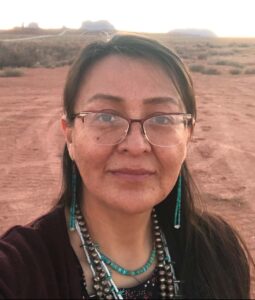
Dawn A. Yazzie, MA, NCC
Dawn’s maternal clan is Ye’ii Dine’e Tachii’nii, born for Kiiya’aanii (paternal clan), and she is the baby of Asdzaa Naadleehi (Changing Woman). She comes from a lineage of resilient survivors of western colonization and the Navajo Long Walk of HwéeldÍ. Dawn is working to reclaim Navajo cultural practices alongside her family to carry forward for future generations. This healing work is in parallel and intertwines with her western perspective work. Dawn worked as an Infant and Early Childhood Mental Health Consultant (IECMHC) on the Navajo Nation for 8 years/ and provided national technical assistance to federal grantees around IECMH/IECMHC through the CoE for IECMHC for 6 years. She brings this experience and the cultural perspective to the work and trainings she provides about Infant Mental Health, and Infant and Early Childhood Mental Health Consultation. Dawn currently focuses full-time on her business, Dził Nitsaa Consulting and Services, LLC, to support agencies/programs in states and Tribal communities to provide IECMH practices and IECMHC services to equitably support young children and families in their communities. She also does training for IECMH/IECMHC professionals to bring an equity focus by leaning into spirituality and multigenerational healing as a beginning step to healing justice work.
-
Cristina Ackerman (C1) -
Randy Ashford (C1) -
Maria Ayala (C1) -
Meeghan Bergmann C1) -
Dotty (Dorothy) DeVaney C1) -
Letha Gillisse (C1) -
Bessie (Elizabeth) Green (C1) -
Krista Haller (C1) -
Rikki-Rachelle Hinz (C1) -
Bryana Kowalski (C1) -
Mary-Virgina Maxwell (C1) -
Jennifer Rees (C1) -
Sonia Reyes (C1) -
Kimberlee Shoecraft (C1) -
Danielle Williams (C1) -
Jennifer Wootsick (C1) -
Rosalinda Cummings (C2) -
Katlynn Feagans (C2) -
Karen Snowden (C2) -
Domitila Morales (C2) -
Jillian Douglas (C2) -
Cecilia Arnoux (C2) -
Marie Sohl (C2) -
Lexi Webster (C2) -
Catalina Angel (C2) -
Sarah Wolfe (C2) -
Norma (Rubi) Smith (C2) -
Joanne Balok (C2) -
Clare Lucas (C2) -
Sanya Unis (C2) -
Clemintene Benjamin (C2) -
Andrea Brudvig (C2) -
Melinda Contraro (C2) -
Stacy Scott (C2)
Cristina Ackerman
 Randy Ashford, LMHC, IMH-E®
Randy Ashford, LMHC, IMH-E®
I have worked as an early childhood therapist and consultant for a number of years, and in a variety of capacities. I have professional interests in trauma, equity, developmental neuroscience, and the human ecosystems where these phenomenon unfold, with a particular interest in early care and education settings.
"The ACT Program has been a wonderful opportunity to build a more holistic understanding of the many intersecting factors that influence early development, and to enrich therapeutic practices thanks to an incredible faculty and guest instructors, including well-known figures in the field of infant and early childhood mental health."
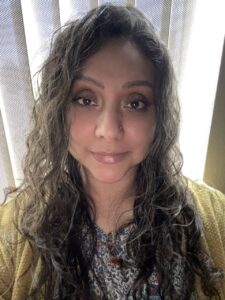 Maria Ayala, MSW LSWAIC
Maria Ayala, MSW LSWAIC
Born and raised in Sunnyside, a small town between Yakima and Tricities, which is three hours away from Seattle. Married my high school sweetheart. We have three children 17,14, and 4. I enjoy spending time with my family and traveling. I graduated from Heritage University with a Bachelor of Social Work (2007). In 2020 I received my Master of Social Work degree (MSW) from Walla Walla University. I spent 12 years of my career as a case manager working with diverse populations. I’ve been working in the mental health field since obtaining my MSW. My plan is to be licensed, LICSW, within a year.
My desire is to normalize mental health and end the stigma. I truly believe if we support and educate parents/caregivers during their children’s early years not only will they learn co-regulation skills to support their children, but their children will gain the skills they need to be able to self-regulate and cope. So hopefully by the the time they are in middle or high school they will need very minimal support.
One of my many projects is “Wellness Group” which I do voluntarily in my community. The Wellness group is for youth and parents/caregivers. Youth will gain a better understanding of mental health. Youth will learn skills to help them cope with daily stressors, understand different mental illnesses, the warning signs of someone struggling with their mental health, and so much more. Parents/caregivers will also be getting mental health education.
I currently work at Triumph as a Lead Mental Health Counselor. Triumph is a multifaceted community service provider offering a continuum of care for substance use and mental health disorder treatment. I also have a seasonal job. I am a facilitator for the Strengthening Families Program since 2019. The program is seven weeks and is offered in Spanish and English. I’ve been doing this for over two years.
As a new clinician, the skills I have gained and the knowledge I am taking away from the ACT program are immeasurable. It was incredible to have the opportunity to learn from amazing professors and clinicians. I am thankful for this program and look forward to applying what I learned.
 Meeghan Bergmann
Meeghan Bergmann
I work as an Early Childhood Mental Health Specialist/Consultant at an Early Learning Center in Seattle, Washington that serves children and families impacted by homelessness. I have a passion for supporting the integration of an ECMH framework/relational way of being in early learning/child care settings in a way that is responsive to the unique needs of the staff, children and families of the specific early learning community. I work at a center that consistently strives to understand how systems of oppression are impacting the lives of the children, families and staff in our early learning community while seeking to be accountable to the ways that we individually and/or collectively uphold systems of oppression or move towards liberation. This orientation to the work has transformed my perspective and practice while supporting my commitment to equity in my professional as well as personal life. I am also a Promoting First Relationships Provider on a UW Research Project and facilitate Reflective Consultation groups for Early Childhood Providers. I have a passion for working collectively with our Washington ECMH community to increase access to reflective consultation groups for interested providers!
My seed project is working with Parent-Child Relationship Programs (PCRP) to offer affordable reflective consultation (RC) groups for Washington State providers with the hopes in the future there will be more matching of Consultants & folks looking for affordable RC groups in the future. An RC group is scheduled to begin in July and space is currently available. See the RC group information flier HERE and/or email Meeghan for more information. Thanks!
“The ACT program provided a high quality, thoughtful, accessible clinical foundation that I had been longing for as an early career provider that integrated early childhood mental health and diversity informed practice. A relational way of being and learning was embodied in the ACT community by instructors and cohort members which will continue to impact me throughout my ECMH journey.”
Dotty DeVaney
Letha Gillisse
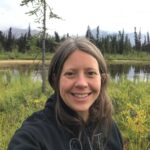 Bessie Green, LCSW, IMH-E® III
Bessie Green, LCSW, IMH-E® III
Bessie Green is a licensed clinical social worker in private practice in Fairbanks, Alaska. Her clinical experience includes work with children and families involved with child welfare and dealing with experiences of family violence, in the community, in a domestic violence shelter, and in jail. Bessie has worked in the area of domestic violence intervention with adult and child survivors of violence and with people who have used violence since 2002. She graduated from Humboldt State University’s MSW program, which focused on Social Work in Rural and Indigenous Communities, in 2016. In her private practice Bessie provides direct services to children and adults, along with reflective consultation and support to professionals and paraprofessionals in the areas of infant and early childhood mental health, child welfare, tribal child welfare, family violence, and crisis intervention services. You can learn about Bessie’s private practice at www.bessiegreenlcsw.com.
"The ACT program gave me the foundation I was looking for to feel confident as a clinician with infants and young children and their families. I am so grateful to have had this wonderful experience in this amazing learning community."
Krista Haller
 Rikki-Rachelle Hinz, LMHCA
Rikki-Rachelle Hinz, LMHCA
Rikki has worked with young children and their families for 15 years in various capacities. She firmly believes, "None of us are well, until all of us are well," (Vienna Rye) and this is the driving force of her purpose & passion in this work. A brief summary of experiences & identities that inform how she shows up in this work: she is a white, cis-gendered queer woman, with the lived experience of having a high ACE score. She completed her BA in Early Childhood and Family Studies at the UW and spent many years working as an infant/toddler, and preschool teacher before going back to the UW for graduate school for a Master's in Applied Child & Adolescent Psychology. She has worked as an IECMH consultant, IMH specialist, and currently works as an IMH therapist for the Early Supports for Infants and Toddlers Program at Kindering.
Her seed project, "Connect, Reflect, Be: In Nature" is about reimagining reflective practice through connection with colleagues on a human level, while engaged in movement through greenspaces.
"The ACT program was an incredibly valuable and worthwhile experience for me. The experience of being held in such unconditional positive regard by instructors and peers led to transformative growth for me. Perhaps the most precious gift I received from the program was an ease in the tension between the personal self and the professional self that had existed within me for so long- my experience in this program taught me that they are one. I feel like I can now bring my whole self into my work with confidence."
Bryana Kowalski
Mary-Virginia Maxwell
Jennifer Rees
Sonia Reyes
Kimberlee Shoecraft
Danielle Williams
Jennifer Wootsick
Rosalinda Cummings
Katlynn Feagans
Karen Snowden
Domitila Morales
Jillian Douglas, M.Ed, RN, DNP-PMHNP
Director of Early Childhood Mental Health and Psychiatry at Evergreen Treatment Center for Pregnant and Parenting Women
Cecilia Arnoux
Marie Sohl
Lexi Webster
Catalina Angel
Sarah Wolfe
Norma (Rubi) Smith
Joanne Balok
Clare Lucas
Sanya Unis
Clemintene Benjamin
Andrea Brudvig
Melinda Contraro
Stacy Scott
ACT Program Application Form
The application period for the 2025-2026 Cohort of the ACT Program will open July 1, 2024!
If you are interested in applying for the 2025-2026 Cohort of the ACT Program, please reference the Sample Application Form below. Note that there may be changes to the information requested.
SECTION BELOW FOR REFERENCE ONLY
Please read the information below before proceeding with the application:
- Applications will be submitted via an online Application Form.
- As stated in the Program Description, the ACT Program and its curriculum material will require a Google account. We recommend that applicants create a free Google account (if one doesn't already exist) as part of the process to apply for the program. Applicants should use the Google account information to log in to the Online Application Form.
- Applicants will not be able to save the application in an incomplete form. We recommend that applicants use the ACT Program Sample Application Form ACT Program Sample Application Form to ensure that all answers and documents for upload are ready prior to beginning the online Application Form.
- The list of documents applicants will need to upload/attach as a part of the Application are:
- Scan of Academic Transcript(s) - please ensure that all relevant information (e.g. degree and date conferred) are indicated and readable.
- Scan of Professional License, Credential, or Certificate - please ensure that all relevant information on the scans is readable.
- Resume or curriculum vitae (CV) in PDF format.
- Letter(s) of Reference (one required, no more than 2; one must be from an individual with knowledge of applicant's clinical work) in PDF format.
- Autobiographical (Personal) Statement in PDF format (**Note the revised prompt in Sample Application and below)
Write a 2-3 page (maximum) autobiographical statement discussing how your personal, academic, volunteer and/or professional experiences have led you to the mental health AND infant and early childhood mental health fields.
Please address how your qualities, characteristics and life experiences that you bring:
- align with the goals of the ACT Program and the Barnard Center’s commitment to diversity, equity, and inclusion (see Program Goals and Organizational Commitment to Diversity, Equity, and Inclusion Statement at the end of this application);
- influence your approach to Infant and Early childhood mental health practice;
- contribute to your short- and long-term career goals; and
- contribute to the ACT Program’s learning community and the field of infant and early childhood mental health.
Share what has influenced your decisions to pursue advanced clinical training in infant and early childhood mental health at the University of Washington.
Finally, briefly reflect on how you will navigate the significant time commitment for participation in the ACT Program (i.e. organizational support for time release, balancing ACT with life and professional responsibilities, etc.) **NEW PROMPT
Download the ACT Program Sample Application Form here!
CLICK ICON TO GO TO ONLINE APPLICATION FORM: 
Application Submission, Review, Selection, & Acceptance
Priority application period for the ACT Program opens on July 1, 2024 until August 31, 2024. Priority applications will be reviewed in the beginning of September 2024. Priority applicants will be contacted to meet with the Program Director for an informal interview by mid-August 2024. Applications received during the priority application period are more likely to be selected for admission. Applications received after August 31, 2024 will be processed on a rolling basis after priority applications have been processed until November 15, 2024 or until all 20 seats in the cohort are accounted for. Informal interviews are scheduled within 1-2 weeks of receipt. Applicants typically receive selection notifications within a week of the interview.
- Priority Application Period: July 1, 2024 - August 31, 2024
- Priority Application Processing & Selection: September 1 - 15, 2024
- Final Application Period Close: November 15, 2024
Application & Enrollment Process
- Submit Application
- Informal Interview with Program Director
- Program Fee Waiver Application and Notification Process (if applicable)
- Submit Enrollment Form
Selection Criteria
Applicant should hold a graduate degree in mental health counseling or related field from an accredited graduate program and be licensed or license-eligible.
Prospective applicants not meeting the above criteria but provides mental health services in a license-holding organization and is receiving reflective supervision from a licensed mental health clinician should contact the program director for consideration prior to submitting an application.
Experience providing mental health services for families with young children is recommended but not required; however, the availability of families with young children as clients during the advanced clinical training (ACT) phase allows for direct hands-on clinical consultation and skill-building/deepening experience.
Alignment with ACT Program goals to expand and diversify the infant and early childhood mental health clinical workforce.
A note about the interview: The interview provides the program with the opportunity to meet and learn more about the applicant through a modality other than writing. It also provides the applicant an opportunity to meet the program director and ask more questions to ensure fit and informed decision-making.31
ACT Program Fee Information
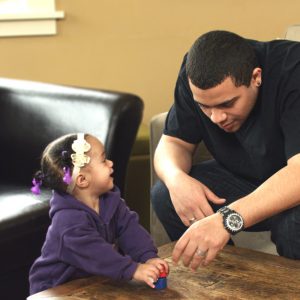 The program fee for the second cohort to launch in January 2025 will be $8,000. The true cost of the program is closer to $20,000 but those costs are offset with philanthropic support.
The program fee for the second cohort to launch in January 2025 will be $8,000. The true cost of the program is closer to $20,000 but those costs are offset with philanthropic support.
Once notified of acceptance into the program, applicants will have 14 business days to accept and submit $500 of the initial payment as a deposit to hold the seat as an enrolled ACT clinician in the program. Instructions will be provided in the Notice of Acceptance. Not meeting this payment and enrollment steps within the 14-business day period will constitute the release of that seat in the ACT Program to another applicant. If the program fee will be covered by a 3rd party (e.g., agency) that cannot meet these deadlines, it is the applicant’s responsibility to contact and discuss an alternative plan with the Program Director, Dr. Nucha Isarowong.
If an enrolled ACT clinician chooses to withdraw from the program after submitting acceptance and enrollment forms and first payment to the Barnard Center, the letter of withdrawal must be submitted to the program director in writing following instructions that will be provided in the Notification of Acceptance. Letters of withdrawal received 1-7 days after the deposit payment was received will be fully refunded. Letters of withdrawal received more than 7 days after the enrollment forms and first payment are received up to and including Monday, December 23, 2024, regardless of cause, will receive reimbursement of one-half (1/2) of the deposit payment ($250 ). No portion of the first payment will be reimbursed if the letter of withdrawal is submitted after December 23, 2024, regardless of cause.
The remaining $1,500 of the first payment is due Monday, January 31, 2025; the second payment of $3,000 is due Monday, May 5, 2025 (Month 5); and the third payment of $3,000 is due Monday, October 6, 2025 (Month 10).
There are two available program fee waivers for clinicians accepted into the ACT Program: one designed for those with a financial need (Need-Based Program Fee Waiver) and one designed for those working as an infant and early childhood mental health consultant (IECMH-C) in early care and education settings provided in partnership with the Department of Children, Youth, and Families (DCYF) IECMH-C Task Force. There also are options for those who will pay privately. See below for more information.
Barnard Center Need-Based Program Fee Waiver
The Barnard Center for Infant and Early Childhood Mental Health has a limited number of partial program fee waivers for support up to $7500 for clinicians accepted into the ACT Program who:
* Are from underrepresented social and experiential backgrounds and have experience with overcoming adversity and/or a demonstrated commitment to diversity, equity, and inclusion.
* Are among the first generation in their family to attend college, experienced socio-economic or educational disadvantage are affiliated with of one of the national minority organizations linked on the US Department of Health and Human Services Office of Minority Health website.
* Have a demonstrated interest and/or active role in advancing access to (health, mental health, and human services) resources for under-served populations.
Eligibility Requirements
You must:
* Apply for admission and be accepted into the Advanced Clinical Training (ACT) Program
* Complete the Need-Based Program Fee Waiver Application which includes a Statement of Financial Need
* Live and/or practice in Washington State
DCYF Infant and Early Childhood Mental Health Consultation (IECMH-C) Program Fee Waiver
The Washington State Department of Children Youth and Families (DCYF) Infant and Early Childhood Mental Health Consultation (IECMH-C) Taskforce has made available a limited number of ACT Program Fee Waivers of up to $8000 + Books (Full Program Fee Waivers) for professionals whose responsibilities are (full-time) or includes infant and early childhood mental health consultation services and who:
* Are from underrepresented social and experiential backgrounds and have experience with overcoming adversity and/or a demonstrated commitment to diversity, equity, and inclusion.
* Are among the first generation in their family to attend college, experienced socio-economic or educational disadvantage are affiliated with of one of the national minority organizations linked on the US Department of Health and Human Services Office of Minority Health website.
* Have a demonstrated interest and/or active role in advancing access to (health, mental health, and human services) resources for under-served populations.
Eligibility Requirements
You must:
* Apply for admission and be accepted into the Advanced Clinical Training (ACT) Program
* Complete the IECMH-C Program Fee Waiver Application which includes a Statement of Financial Circumstance
* Live and/or practice in Washington State with all or part of your role as an infant and early childhood mental health consultant
Self-Funded Financing Options
In addition to the option to paying the Program Fees in 3 installments (see above), below are some additional options that we are providing as suggestions for informational purposes only. We are not making recommendations for any type of financial service; it is the responsibility of the prospective ACT Program clinicians to make their own financial decisions.
Loan and Credit Options: Loan and credit options may work for you, however, you must be aware that each option will have its own benefits and costs and that it may cost more to finance your education due to charged interest and fees.
Bank Loans: There are several banks that offer personal loans or home equity loans. We strongly encourage potential ACT professionals to carefully read and understand loan parameters for payment, interest charged, and early payment penalties of any loan.
Credit Cards: We identified at least one credit card from Bank of American in 2020 that had a no interest requirement for the first 15 months. Once at 15 months interest (typically between 14% and 24% depending on card and applicant credit score) would be charged on the remaining balance at 15 months. While this card is available in the summer of 2020, the terms and conditions may change it is the responsibility of the applicant to review and accept any terms and conditions.
ACT PROGRAM OPEN HOUSE
We are…
A 15-month comprehensive, developmentally-grounded, relationship-based, diversity-informed foundational and specialized clinical professional development program in Infant and Early Childhood Mental Health
Are you…?
A mental health professional who is:
- looking to specialize, enhance, advance, or expand your clinical mental health services with families who are expecting or caring for infants, toddlers, and preschoolers
- interested in infant and early childhood mental health consultation
A mental health agency that is:
- interested in enhancing and/or expanding clinical mental health services with families who are expecting or caring for infants, toddlers, and preschoolers
- interested in enhancing and/or expanding services in infant and early childhood mental health consultation
- interested in the Child-Parent Psychotherapy (CPP) Learning Collaborative
We strongly encourage any and all interested BIPOC mental health professionals to apply!
Register for a Virtual OPEN HOUSES below:
July 12, 2024, 4pm - 5pm - Registration link
July 25, 2024 12pm - 1pm - Registration link
August 7, 2024 4pm - 5pm - Registration link
August 21, 2024 9am - 10am - Registration link
If you would like more information about the ACT Program, please contact us at BCact@uw.edu to schedule a conversation with the program director or sign up for our mailing list.
Thank you for your interest in the Advanced Clinical Training (ACT) Program!
SPOKANE, WA | FREE IN-PERSON EVENT
